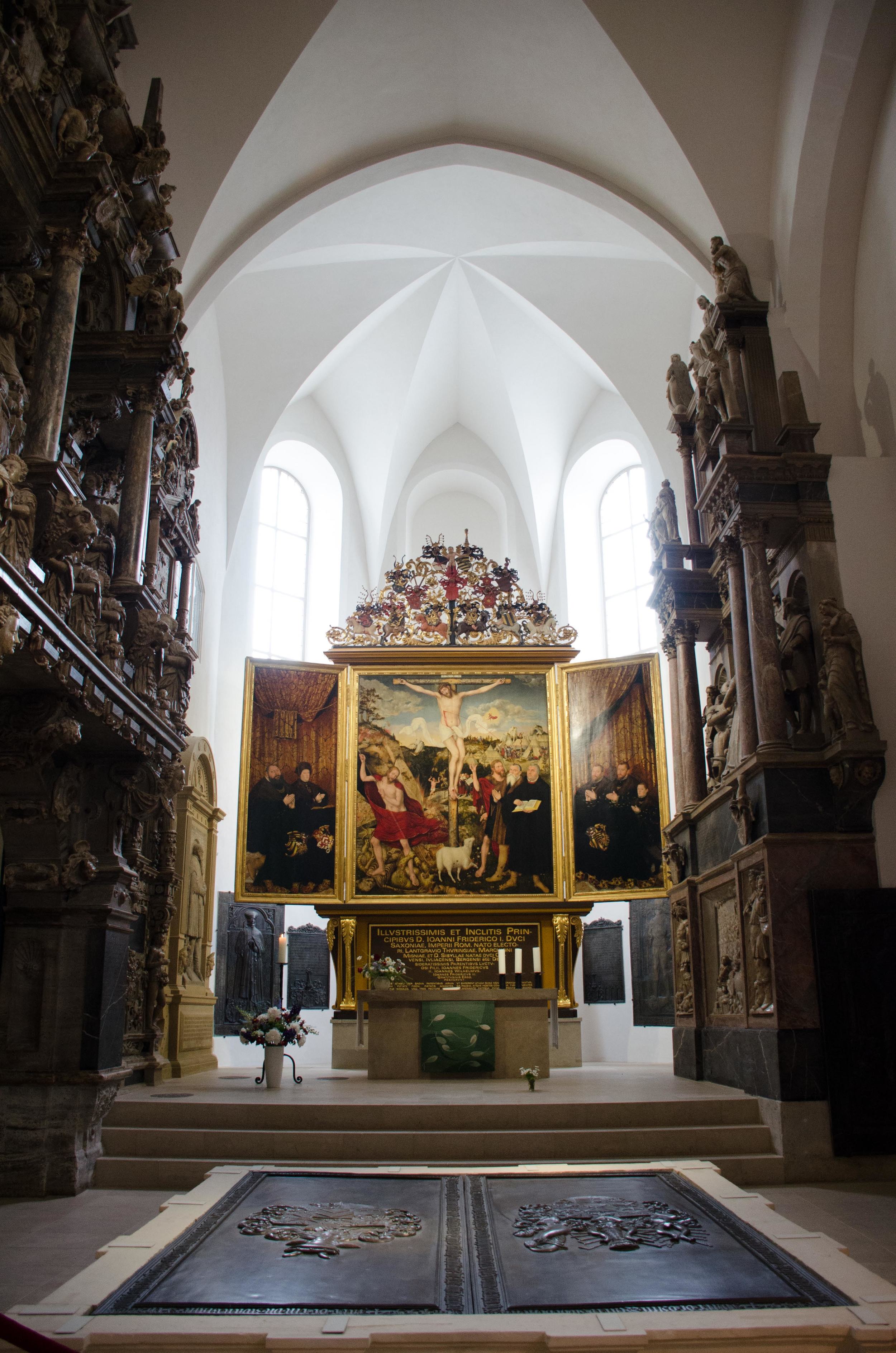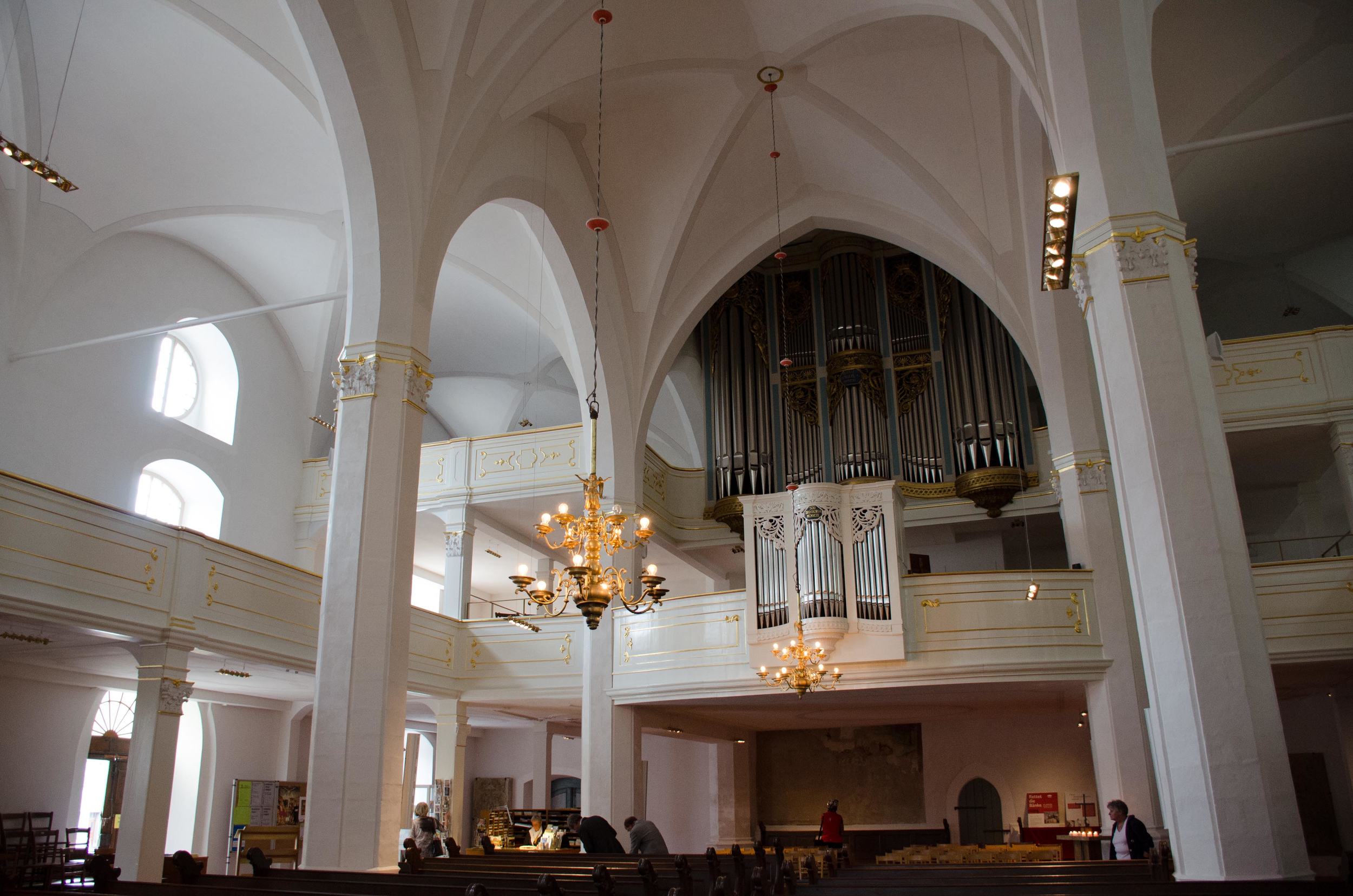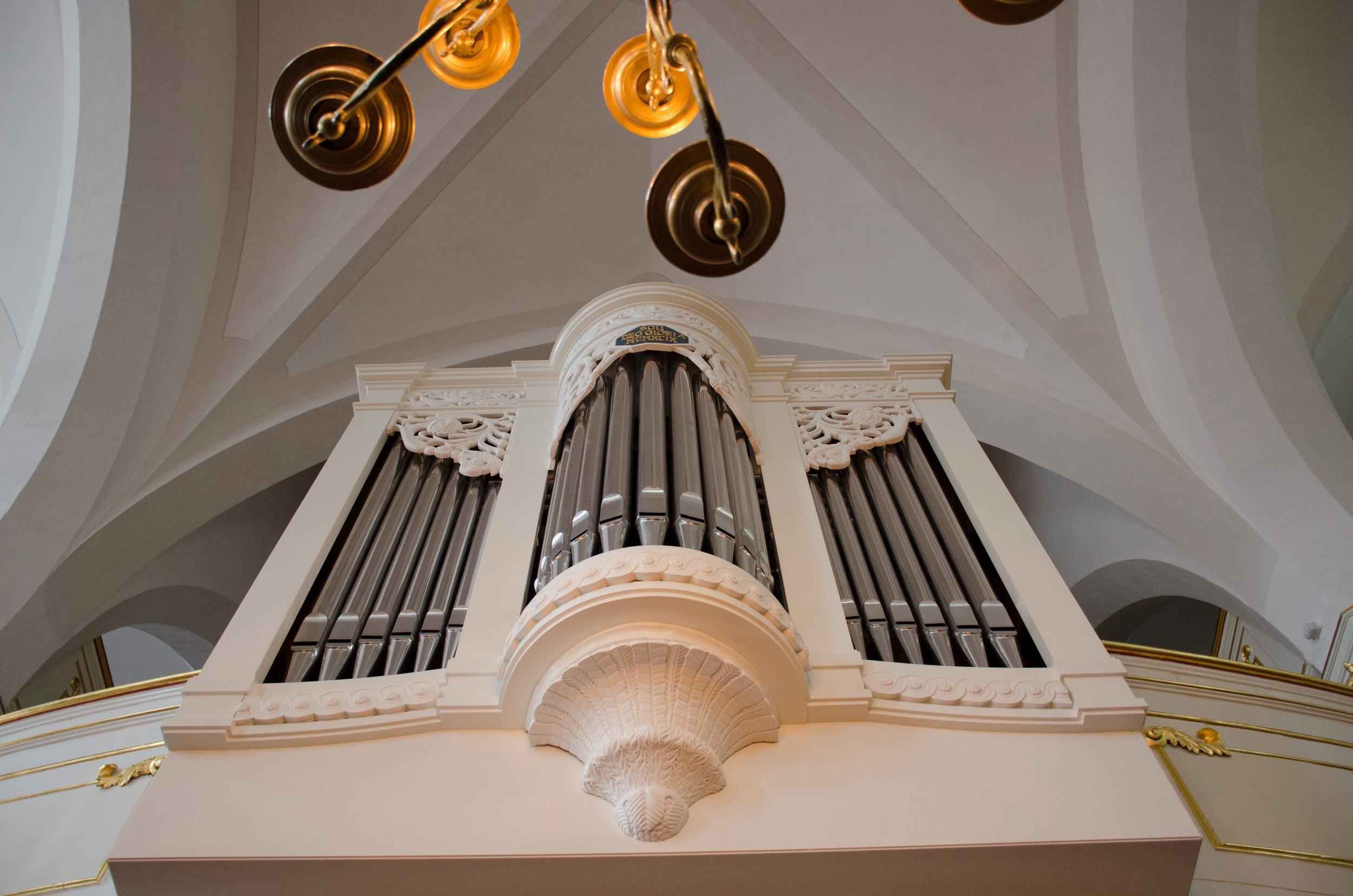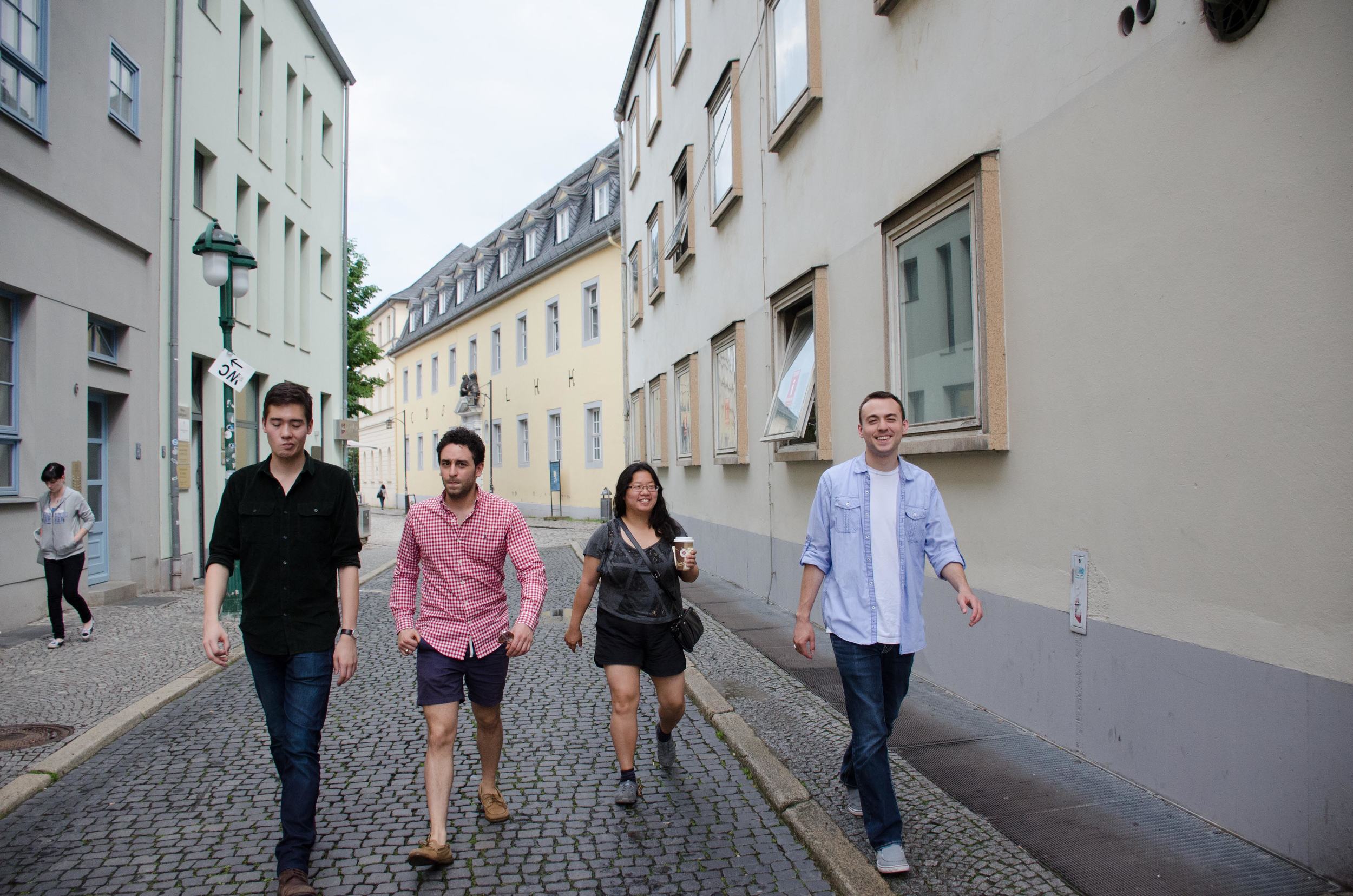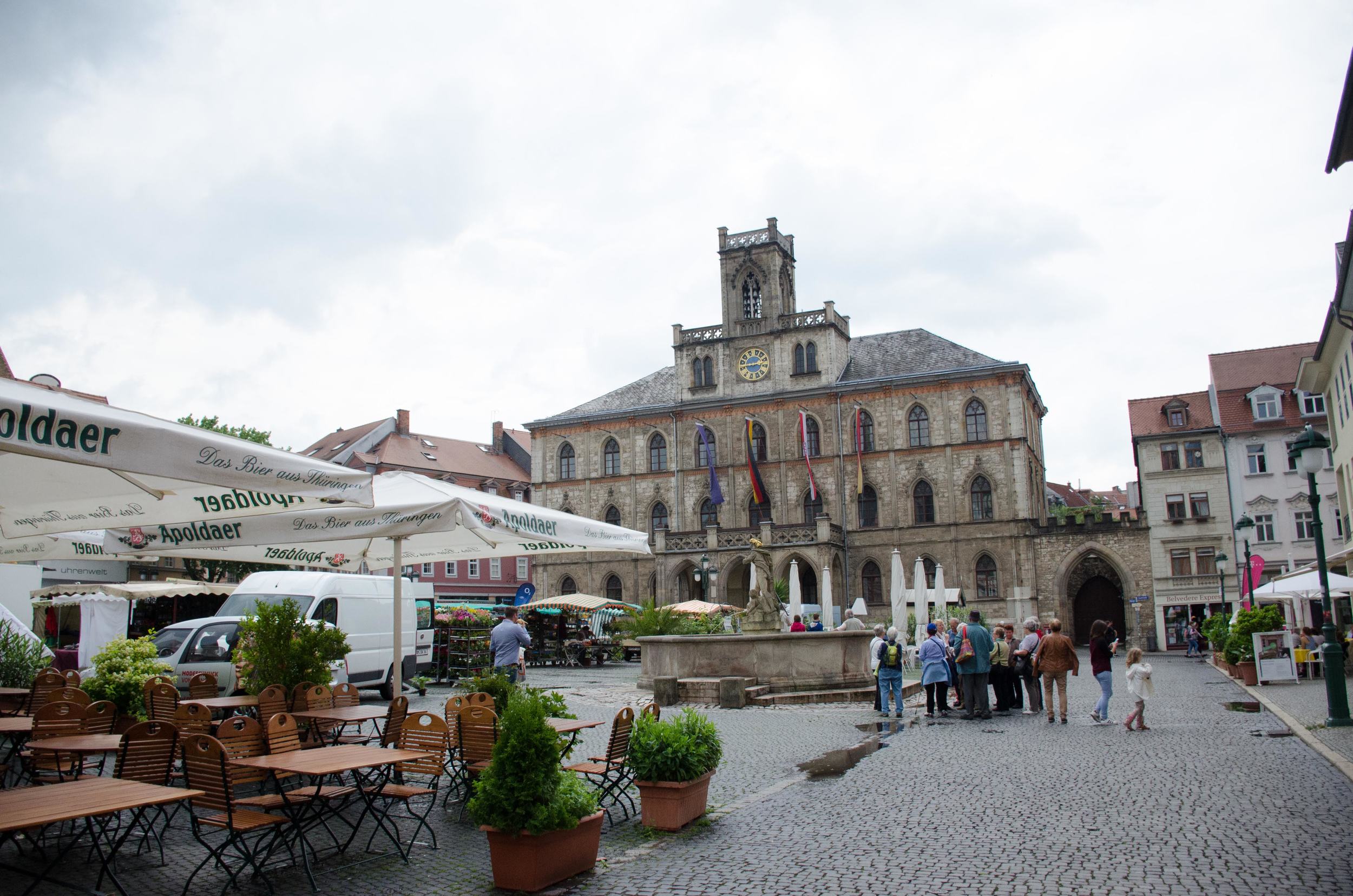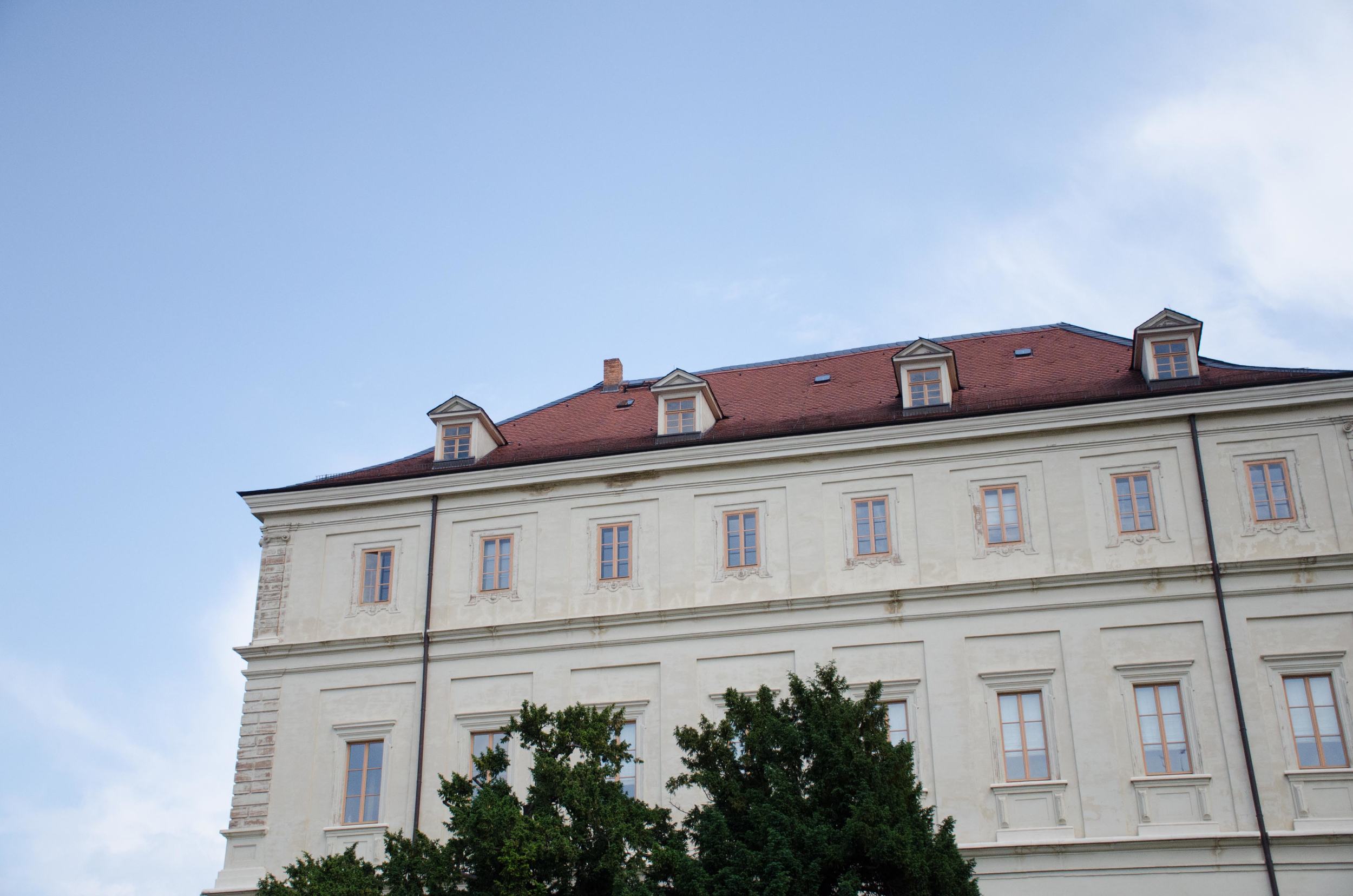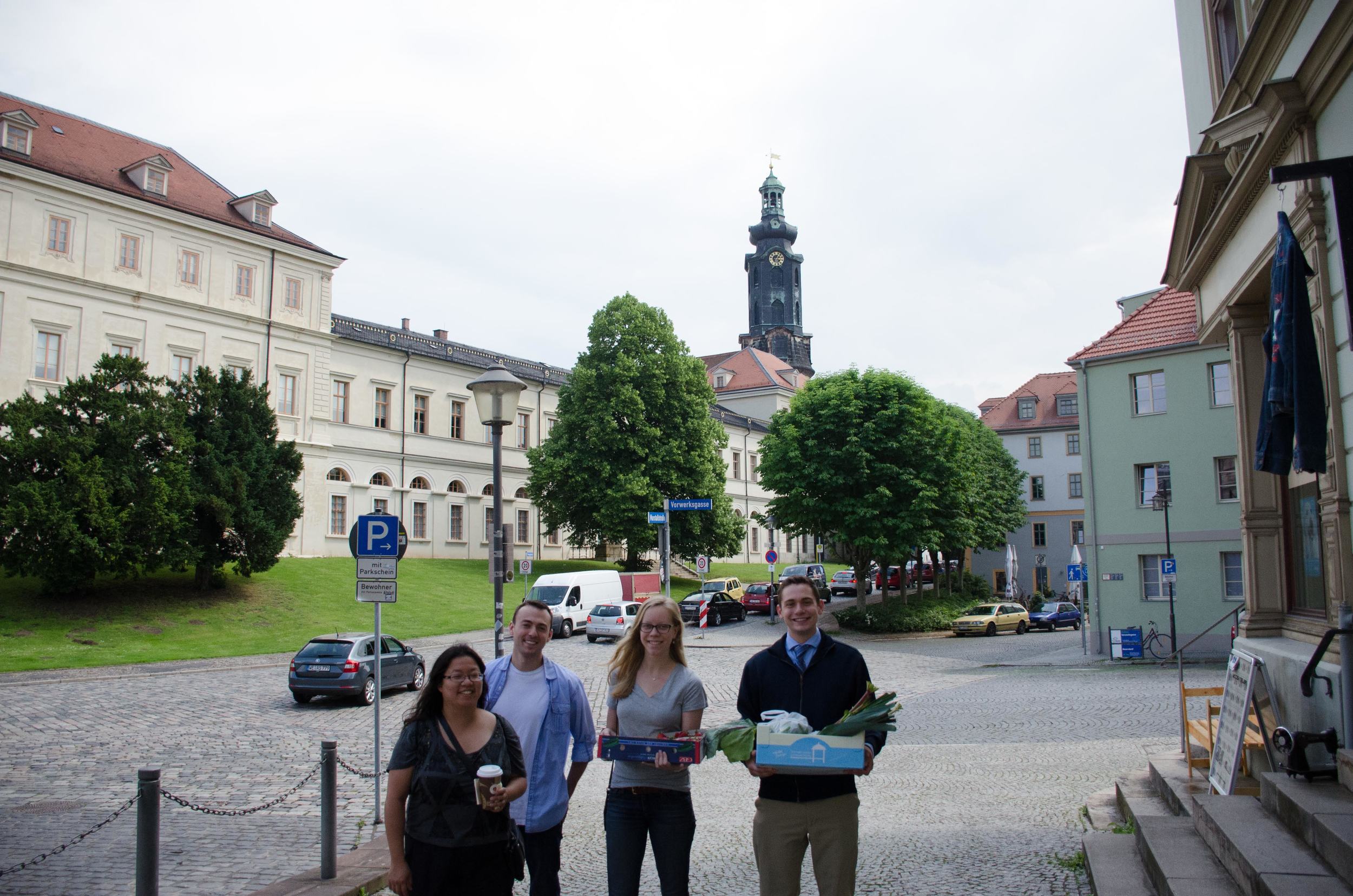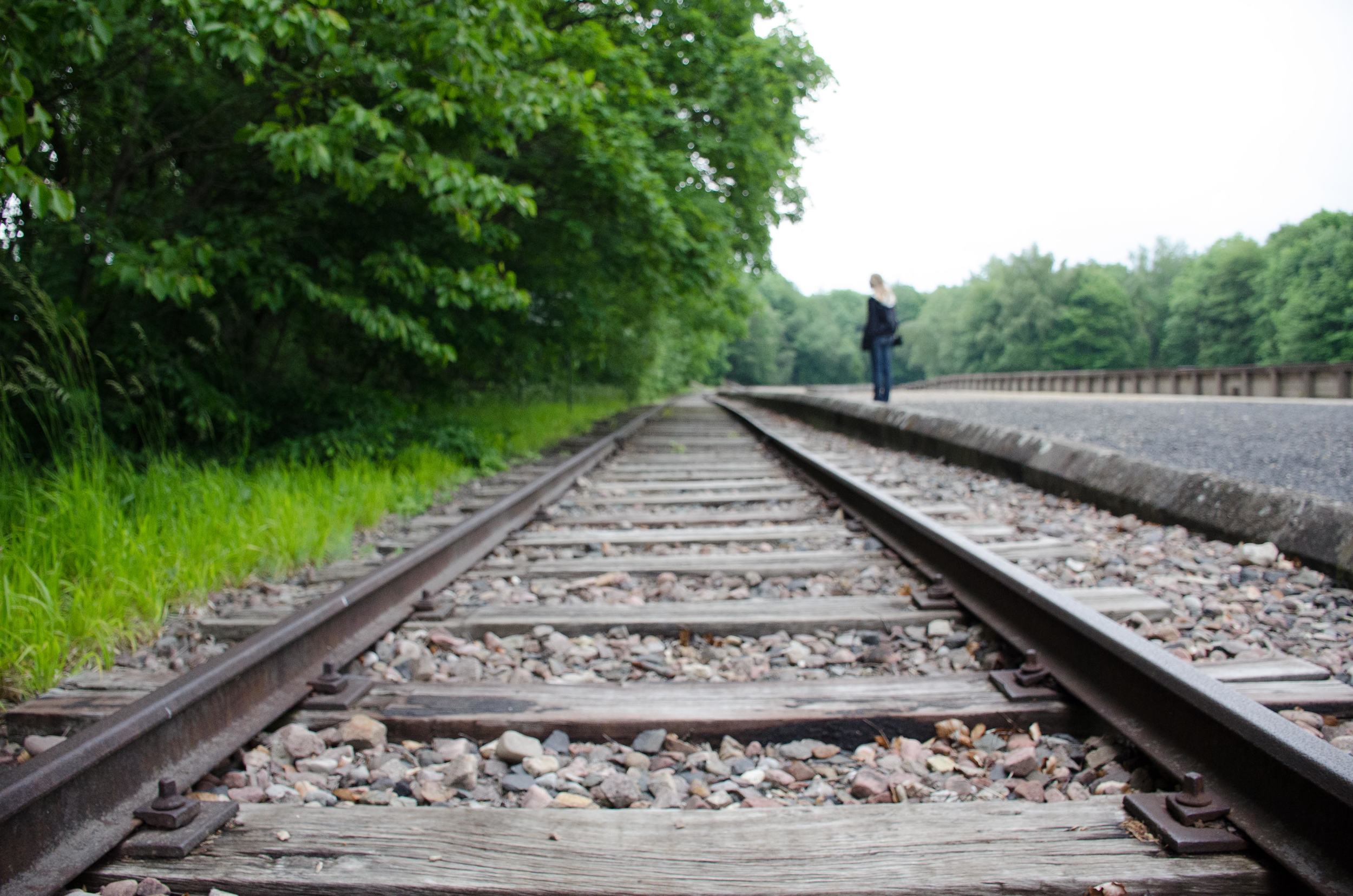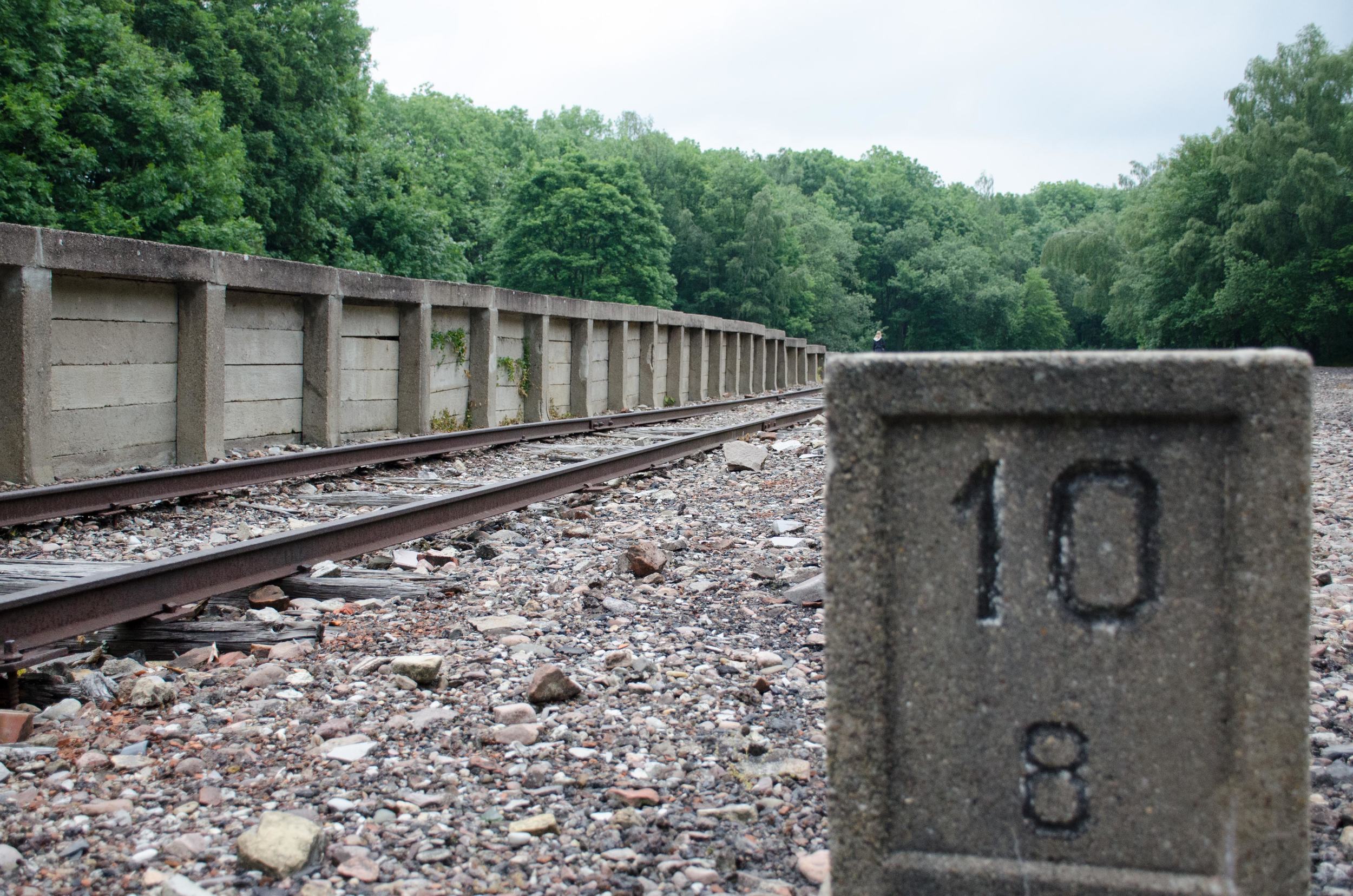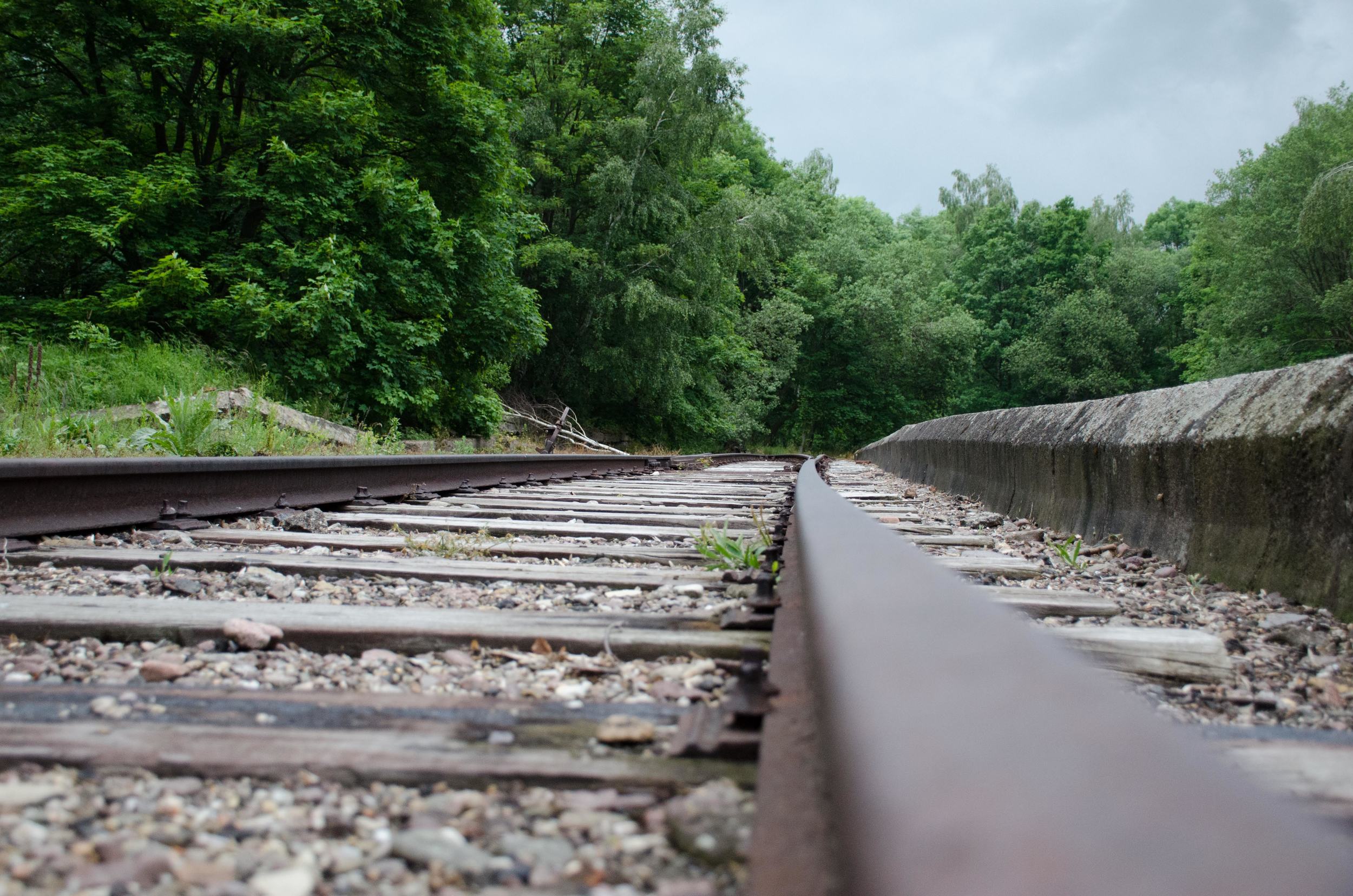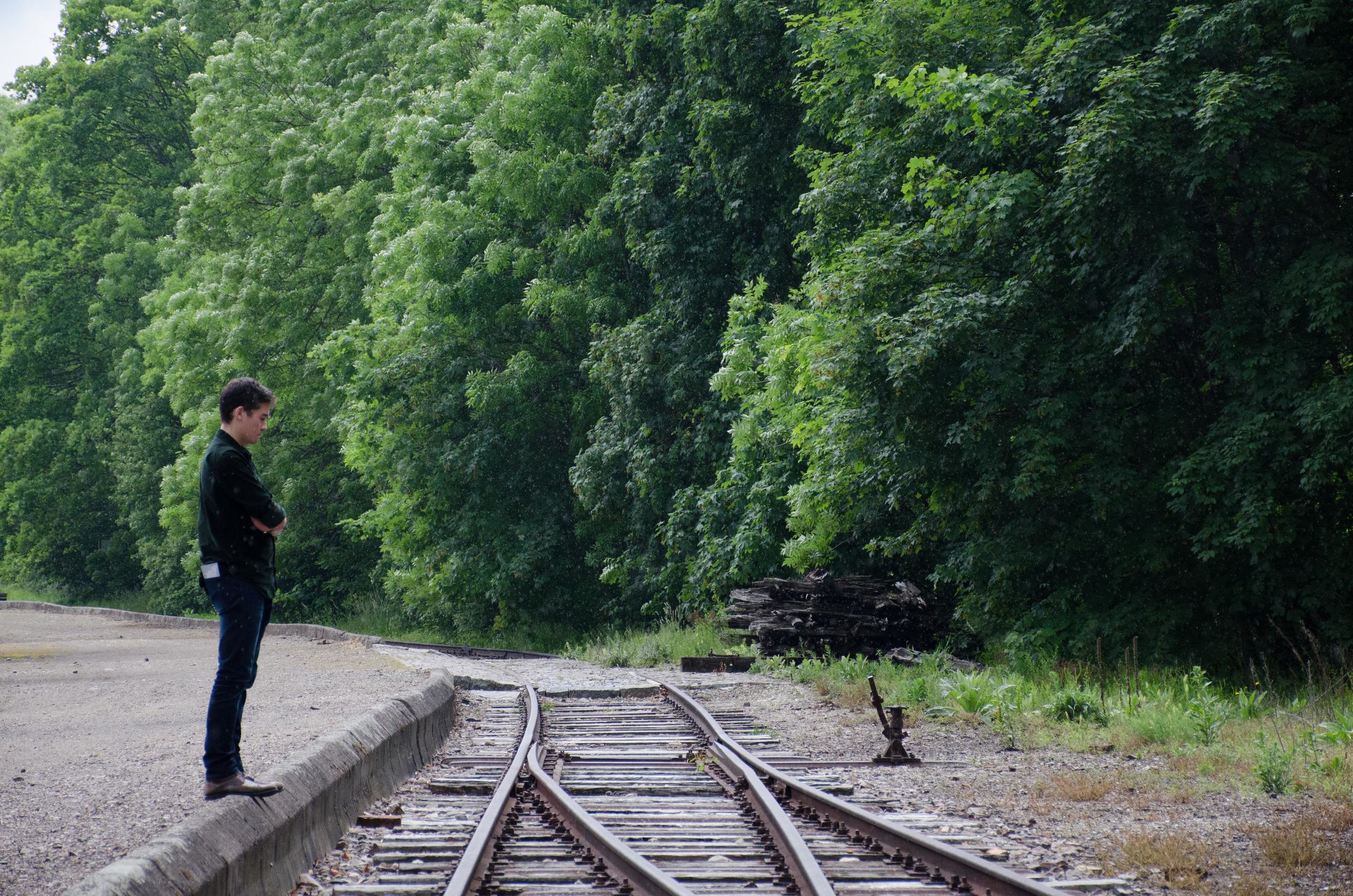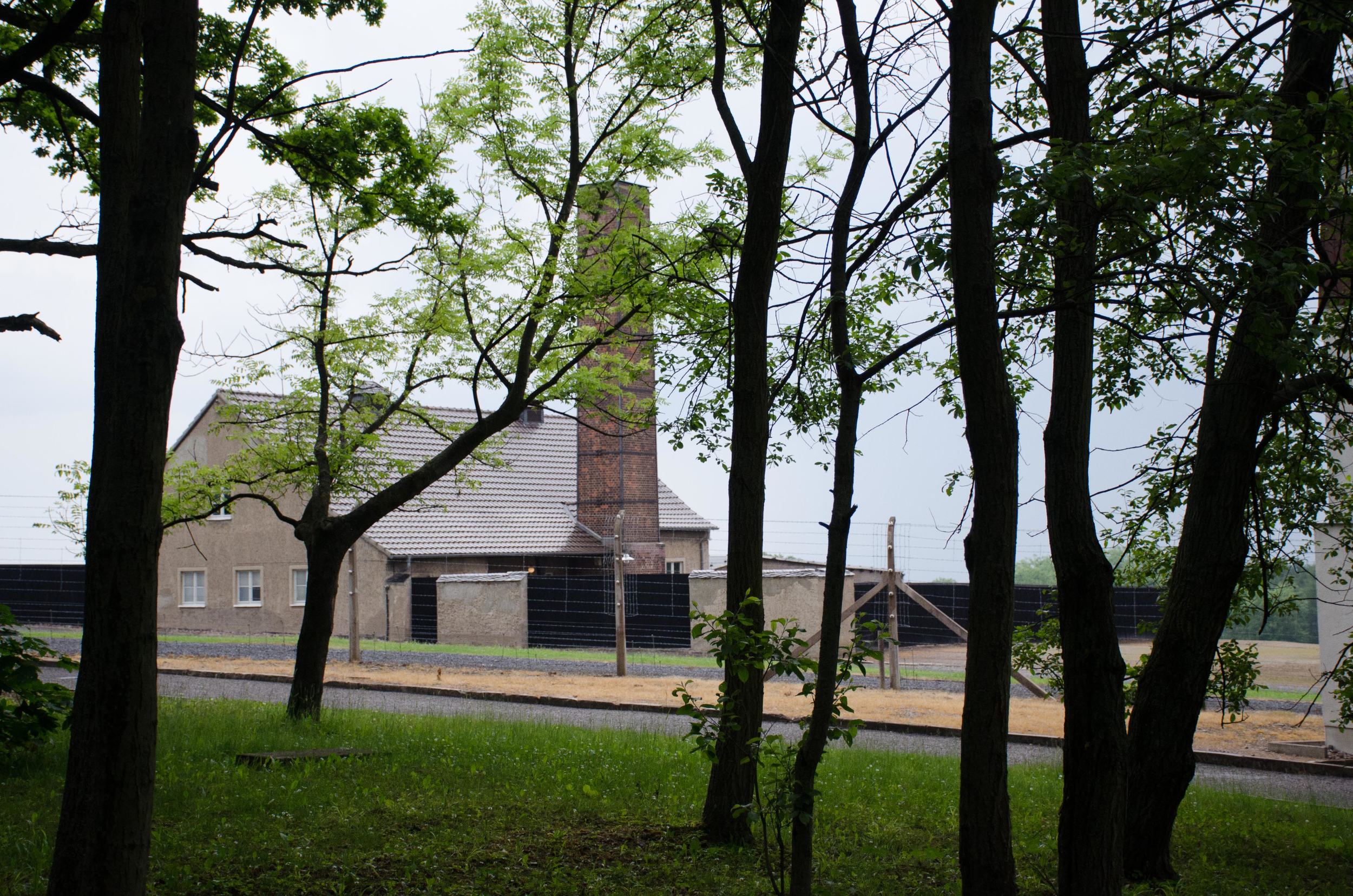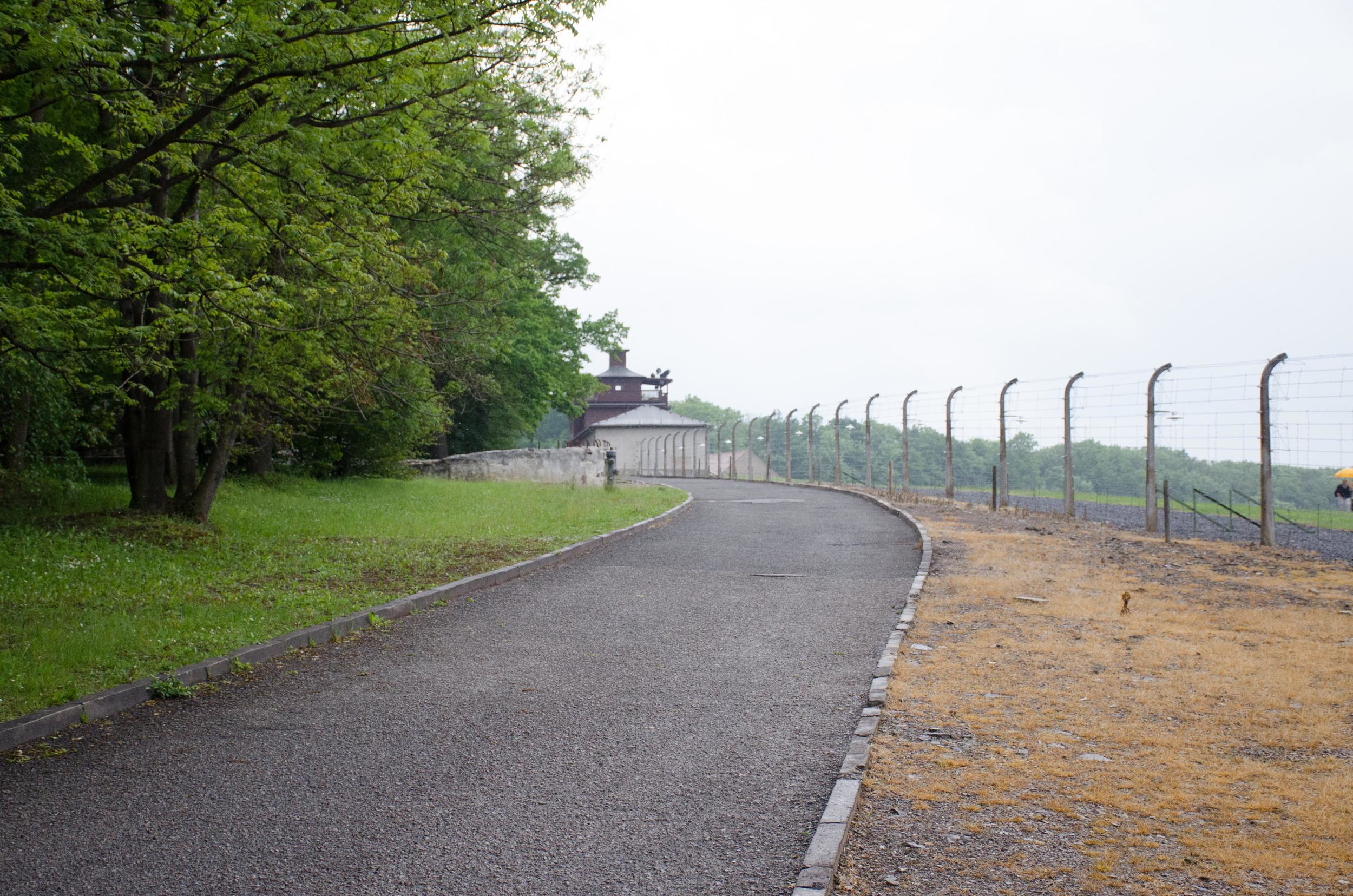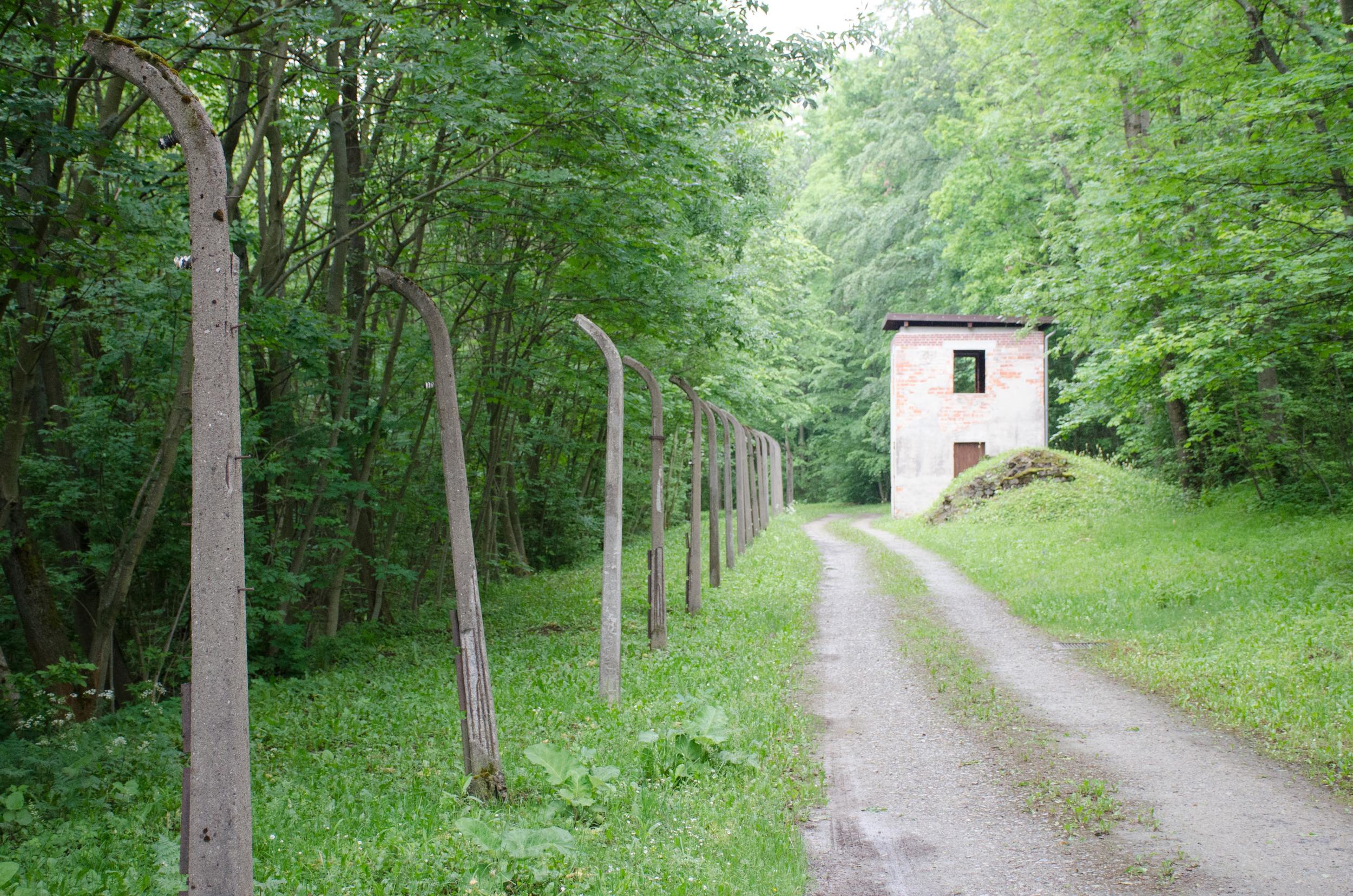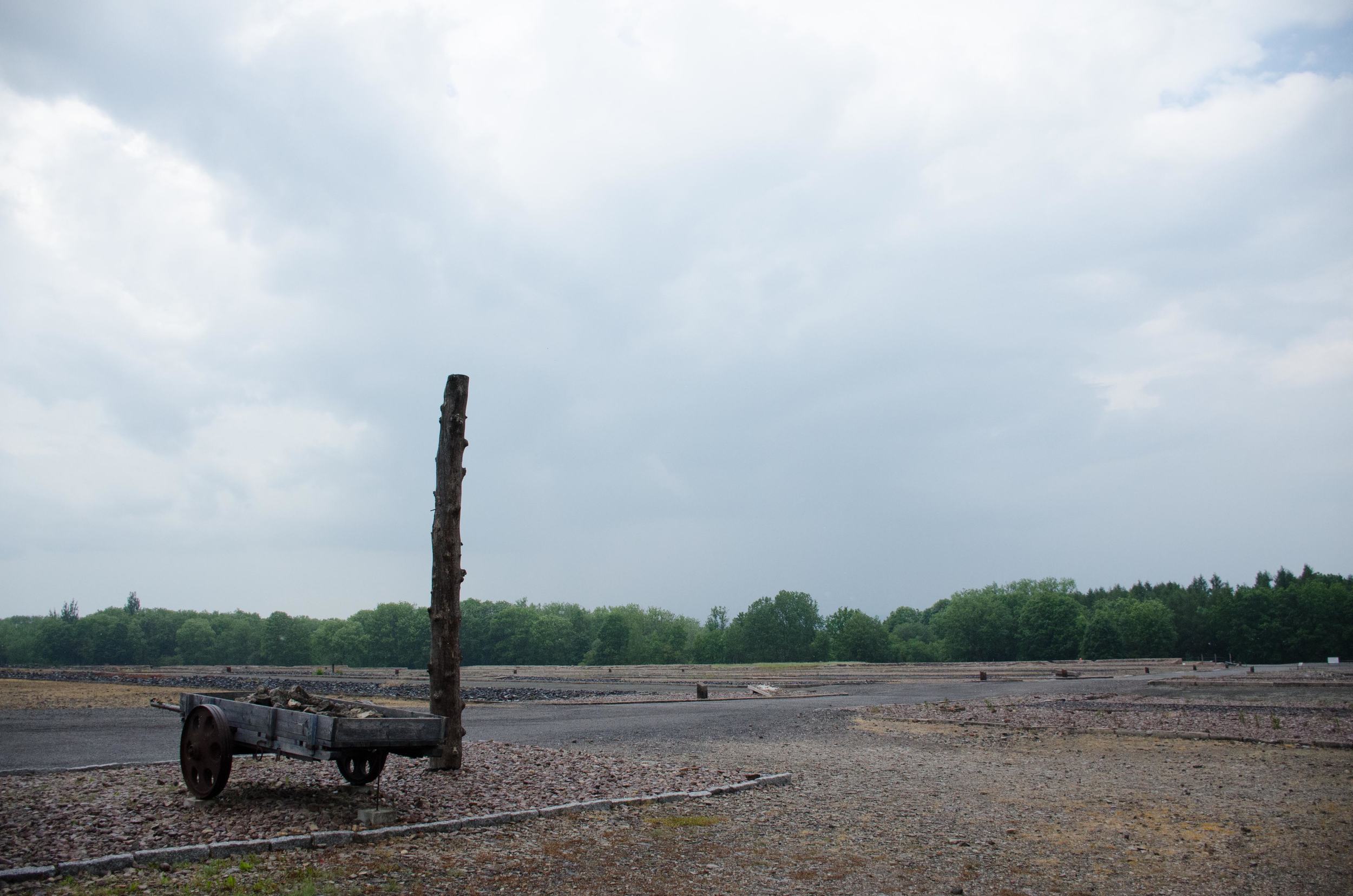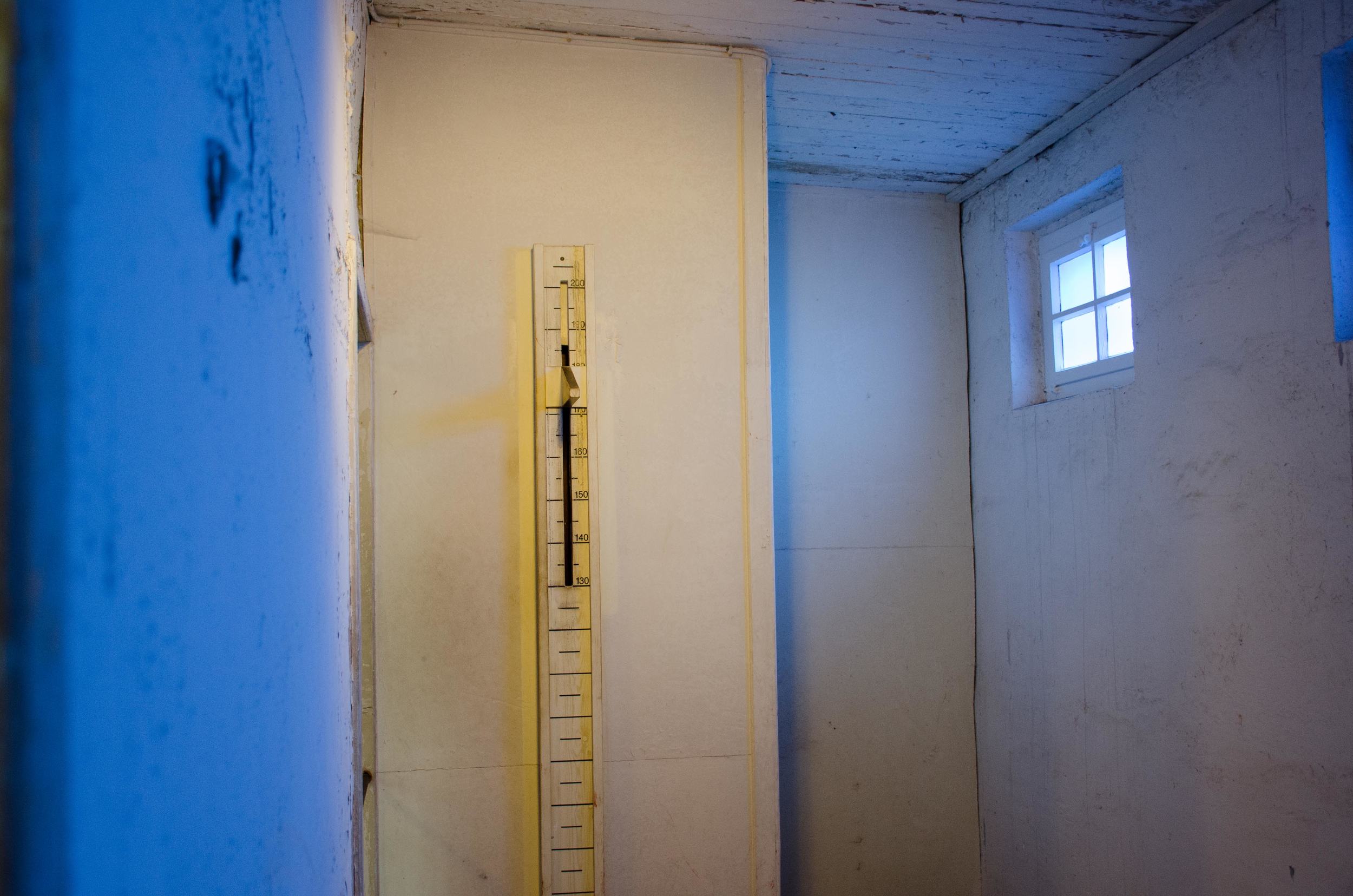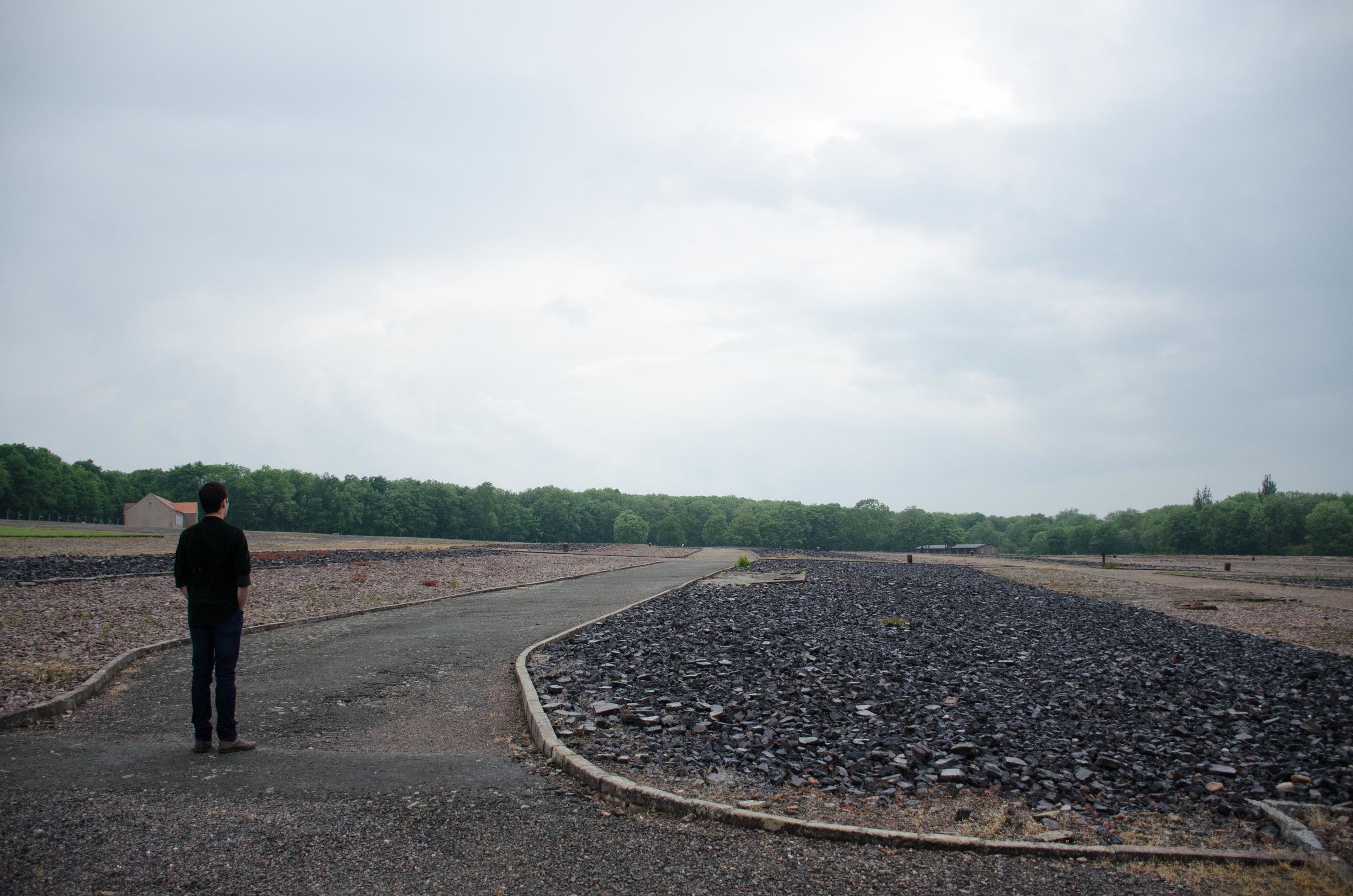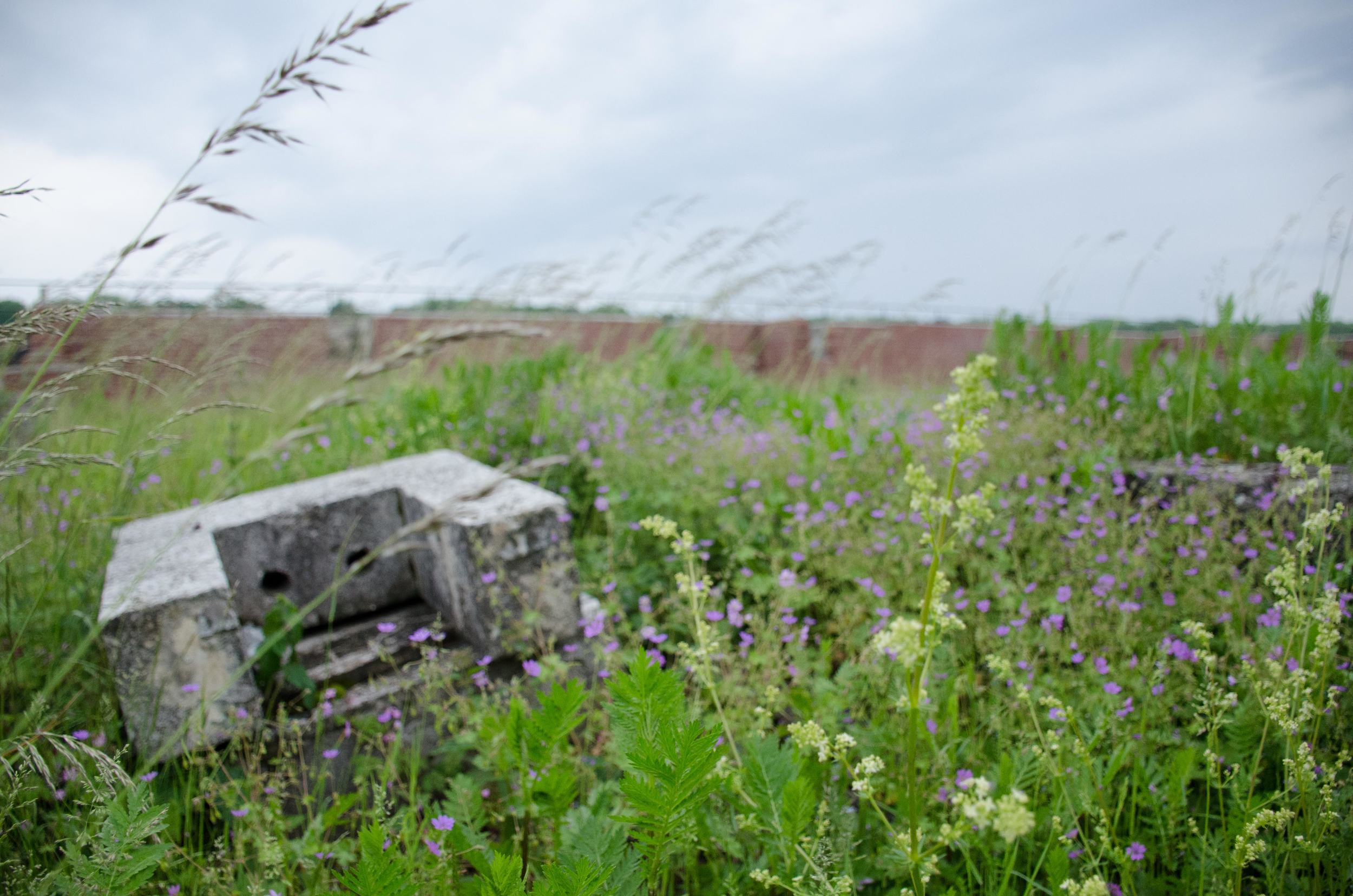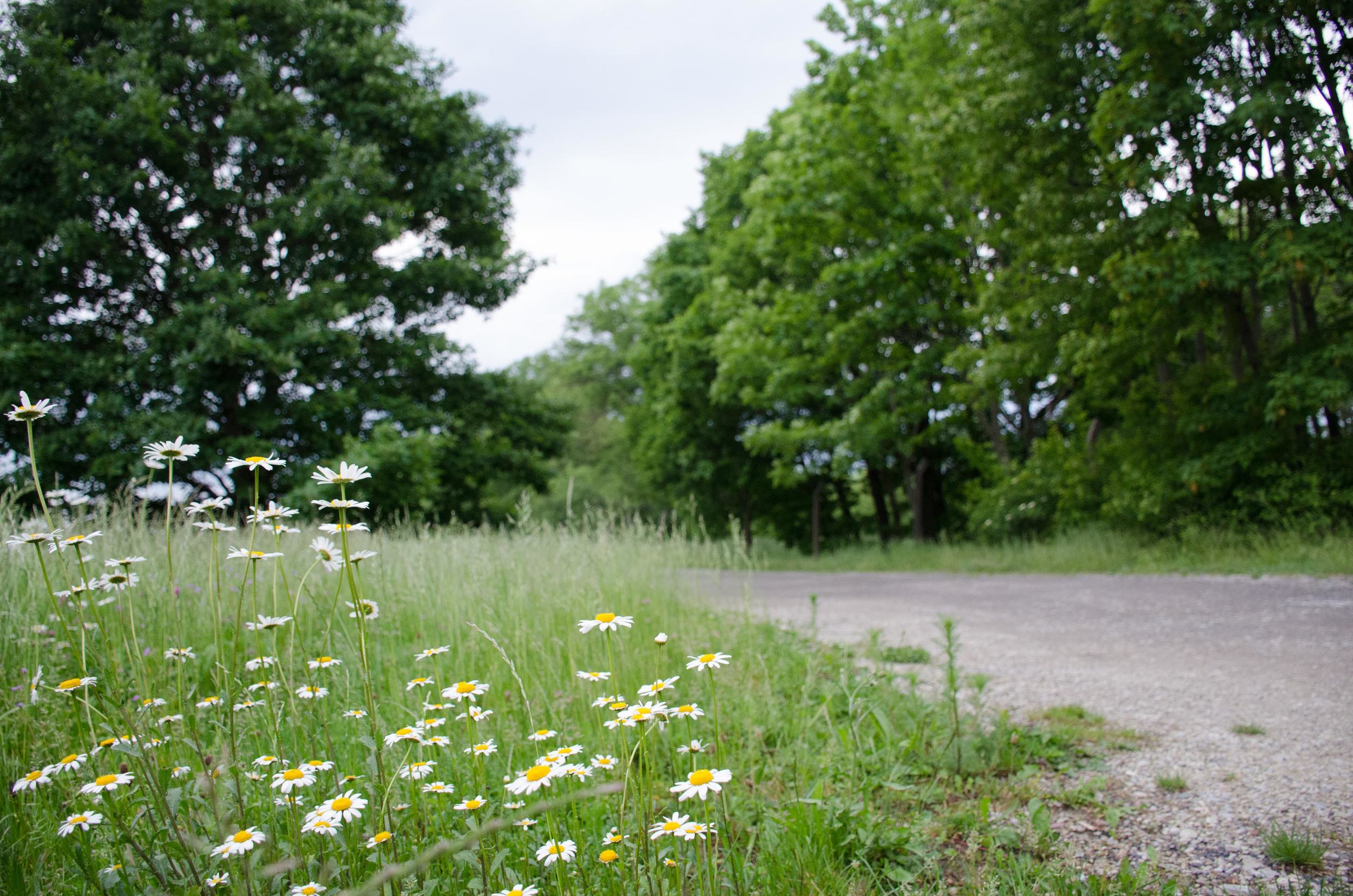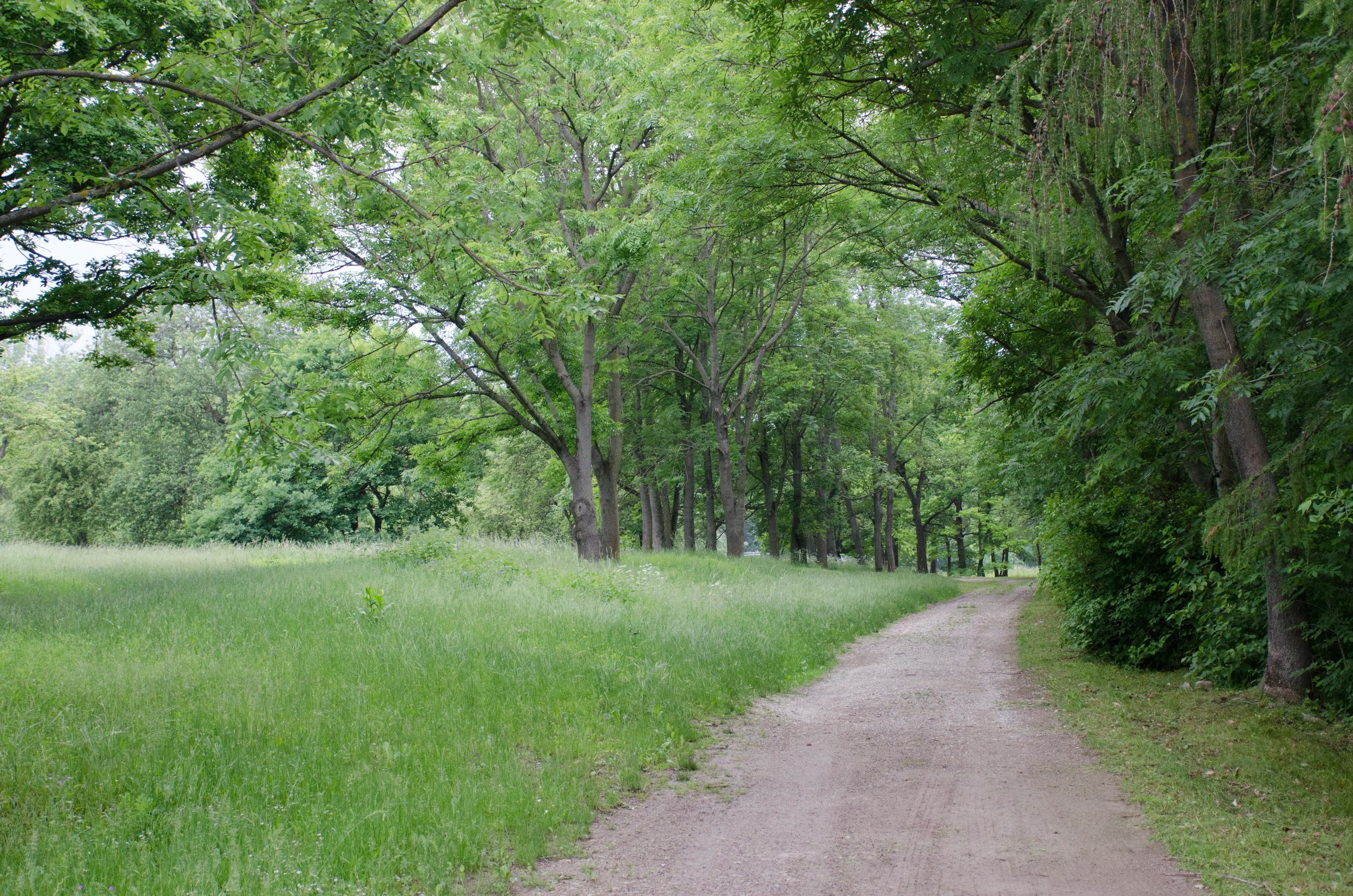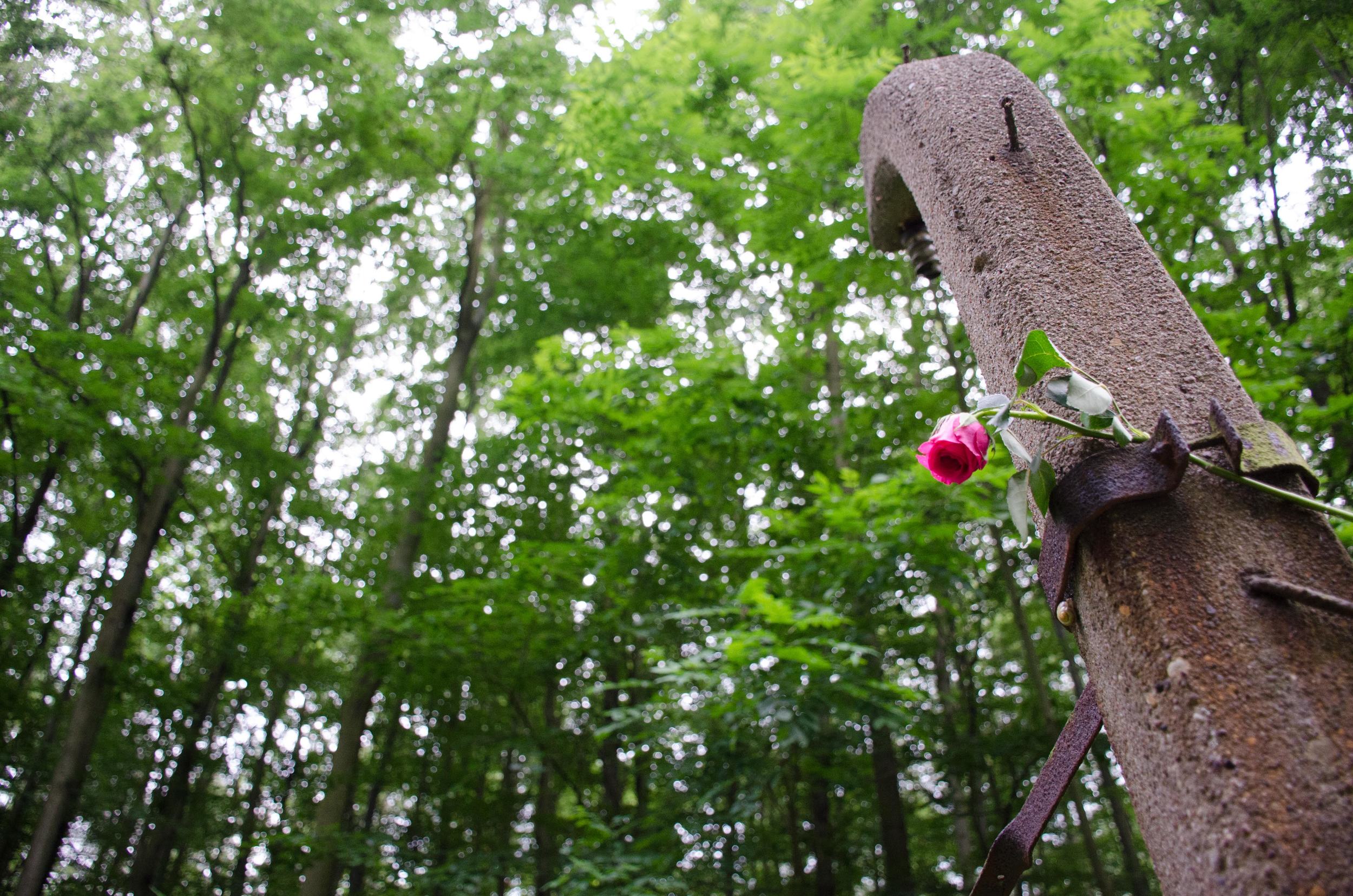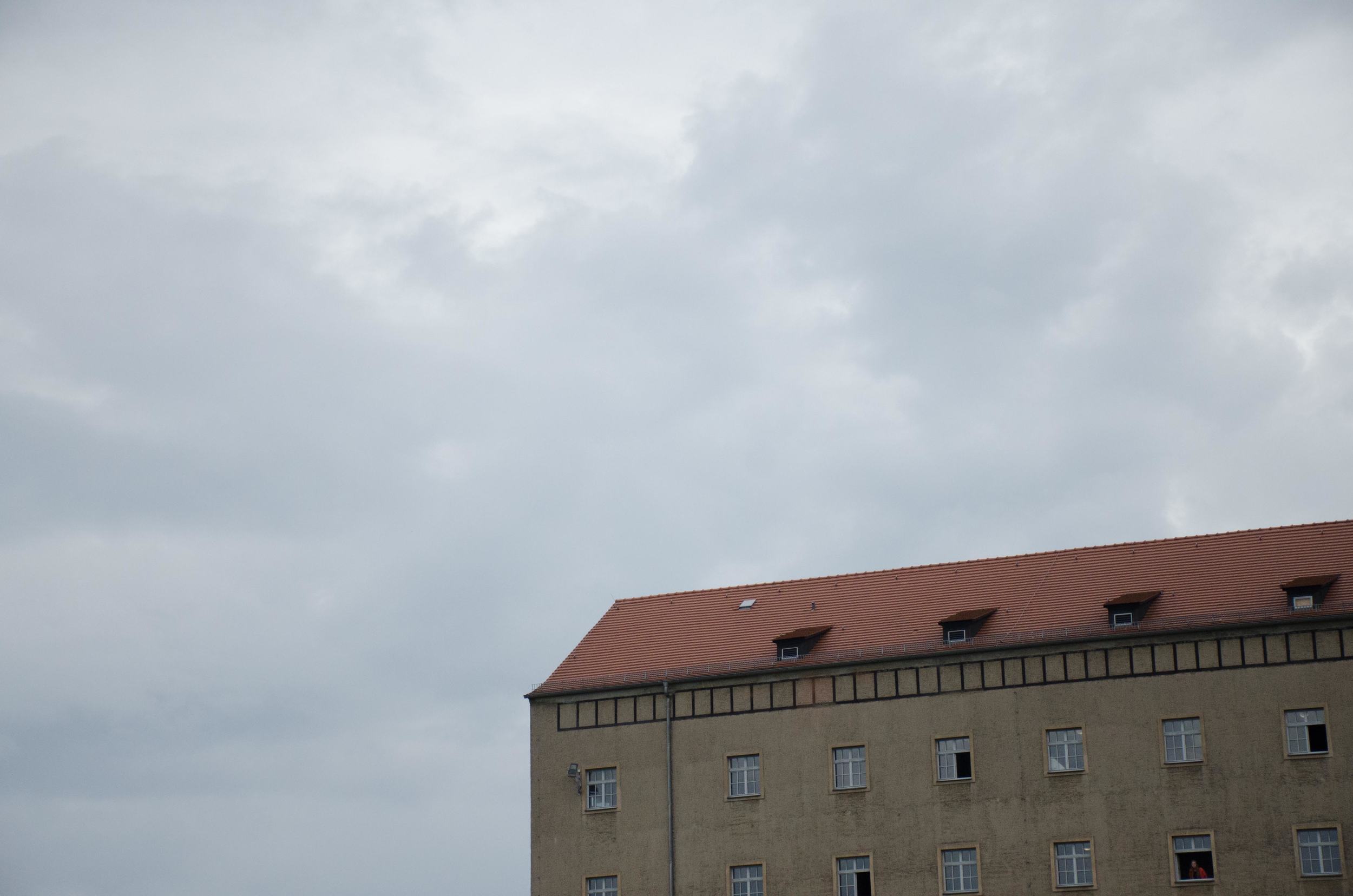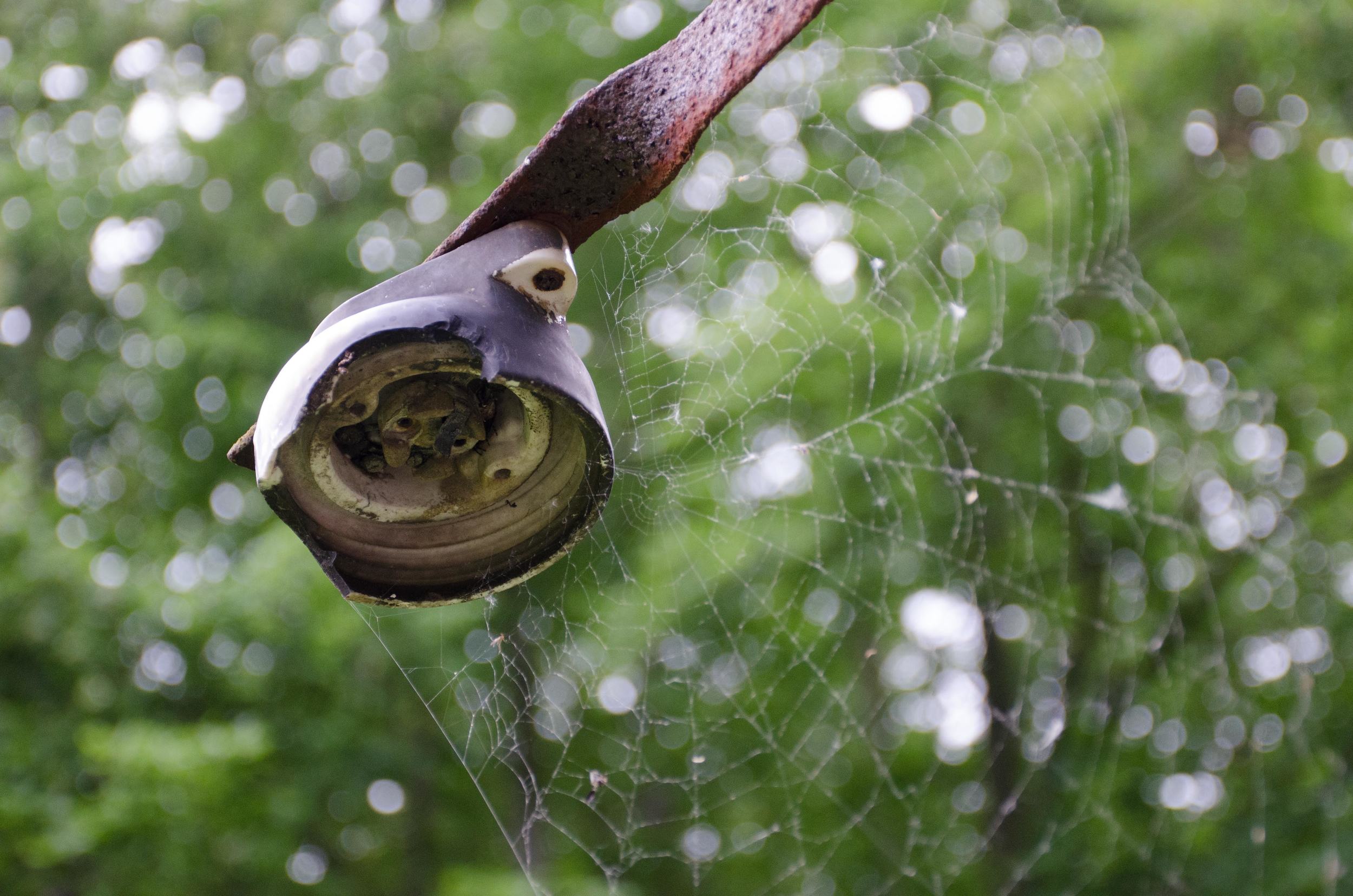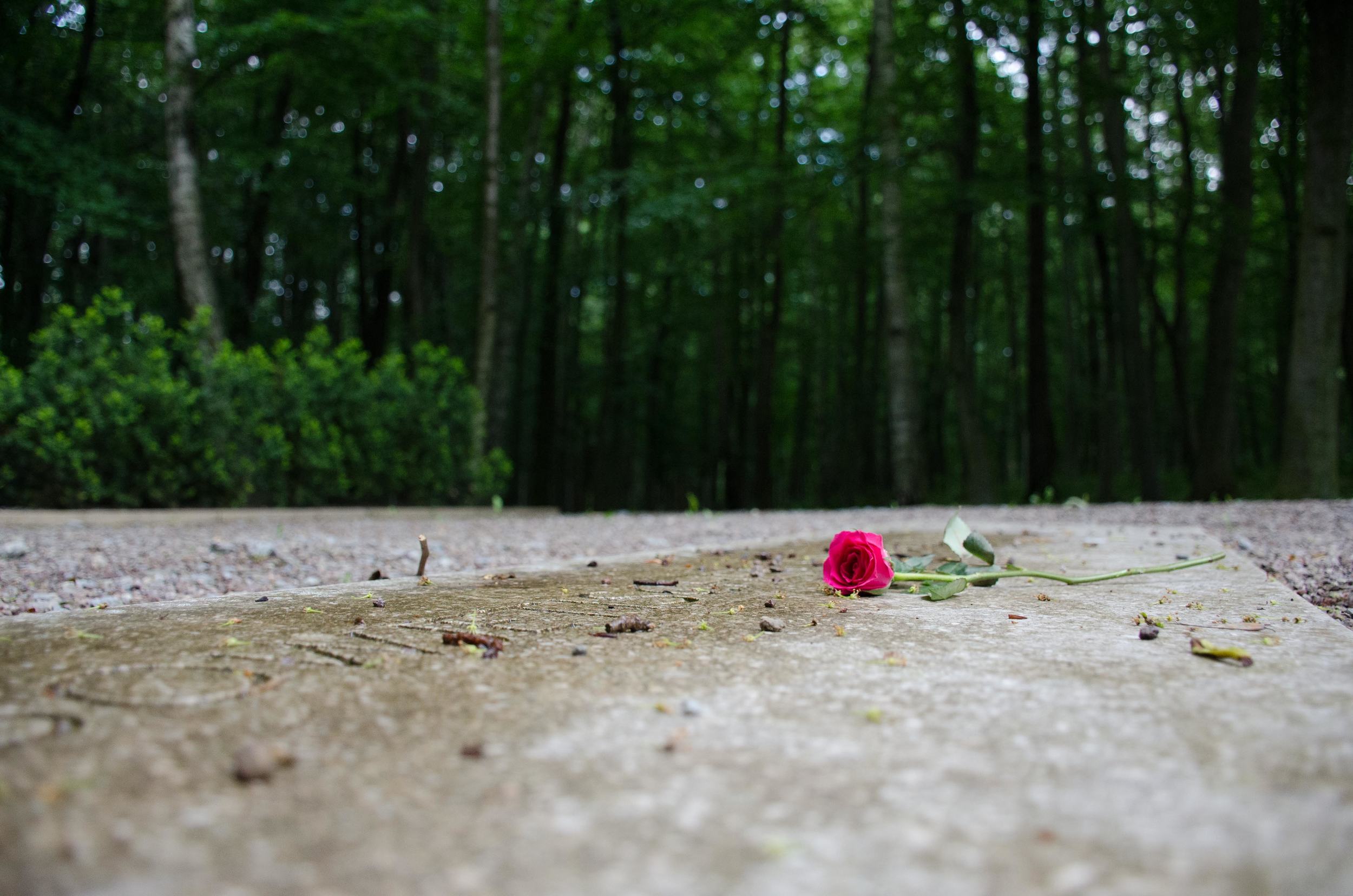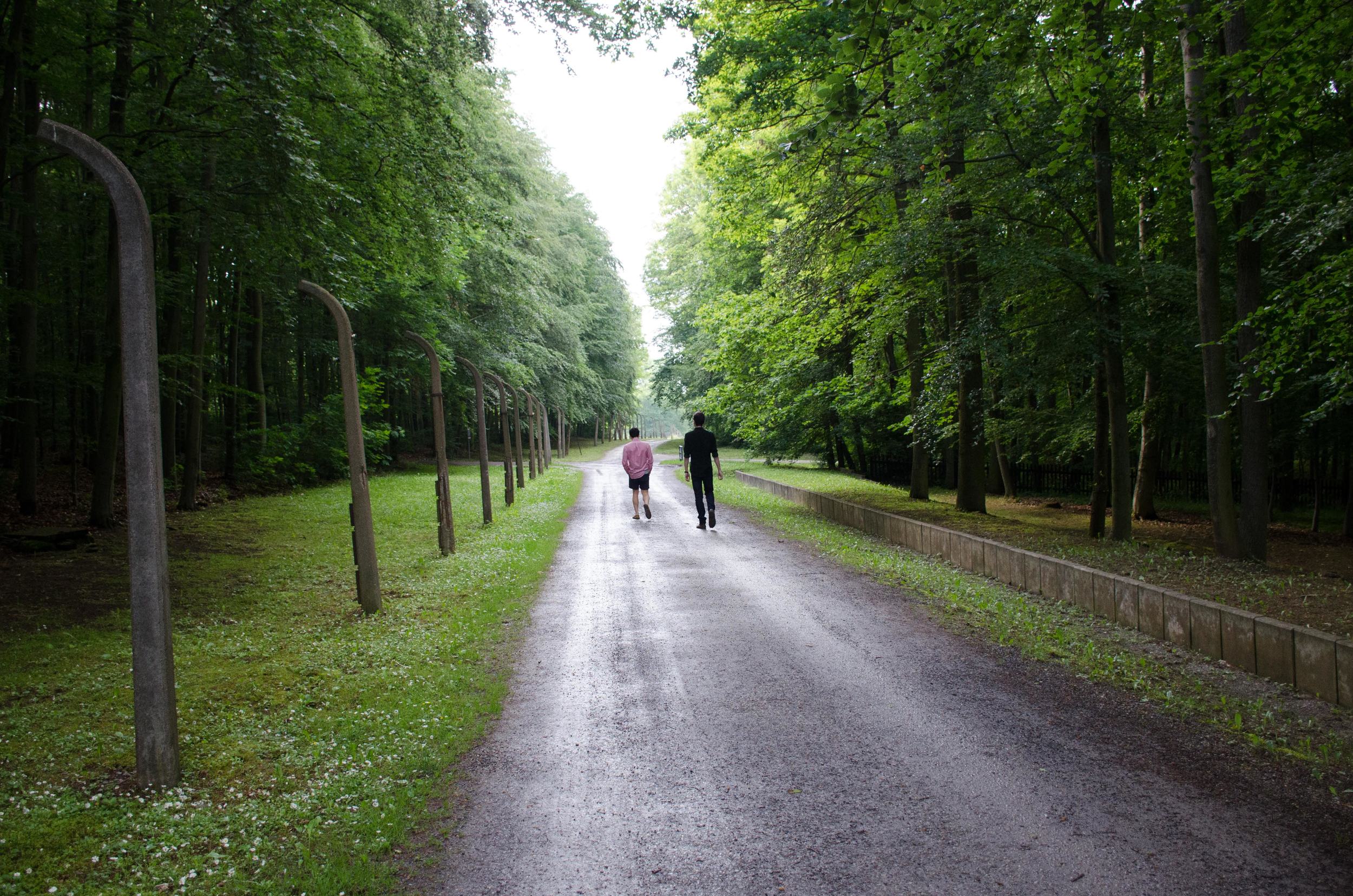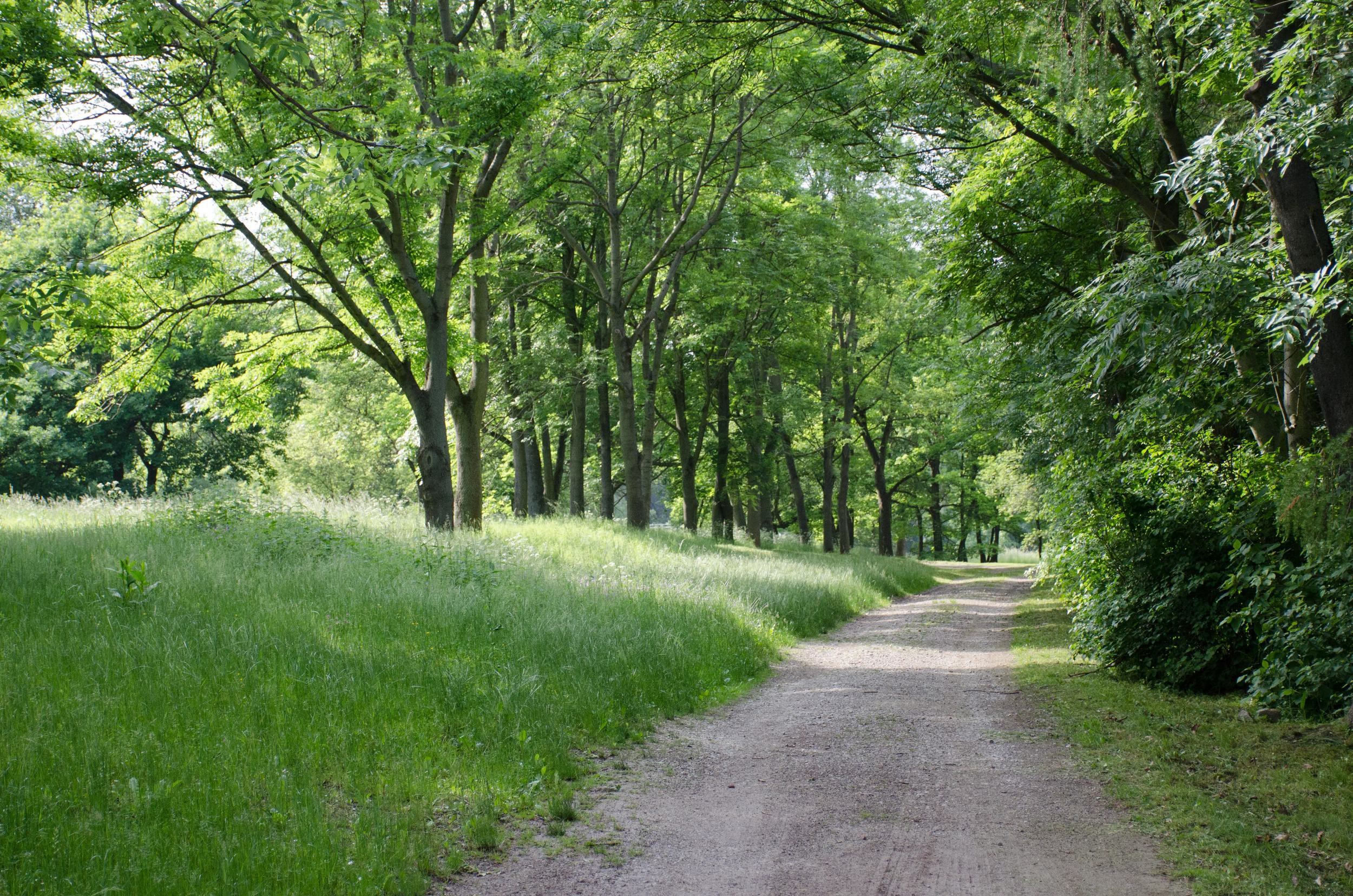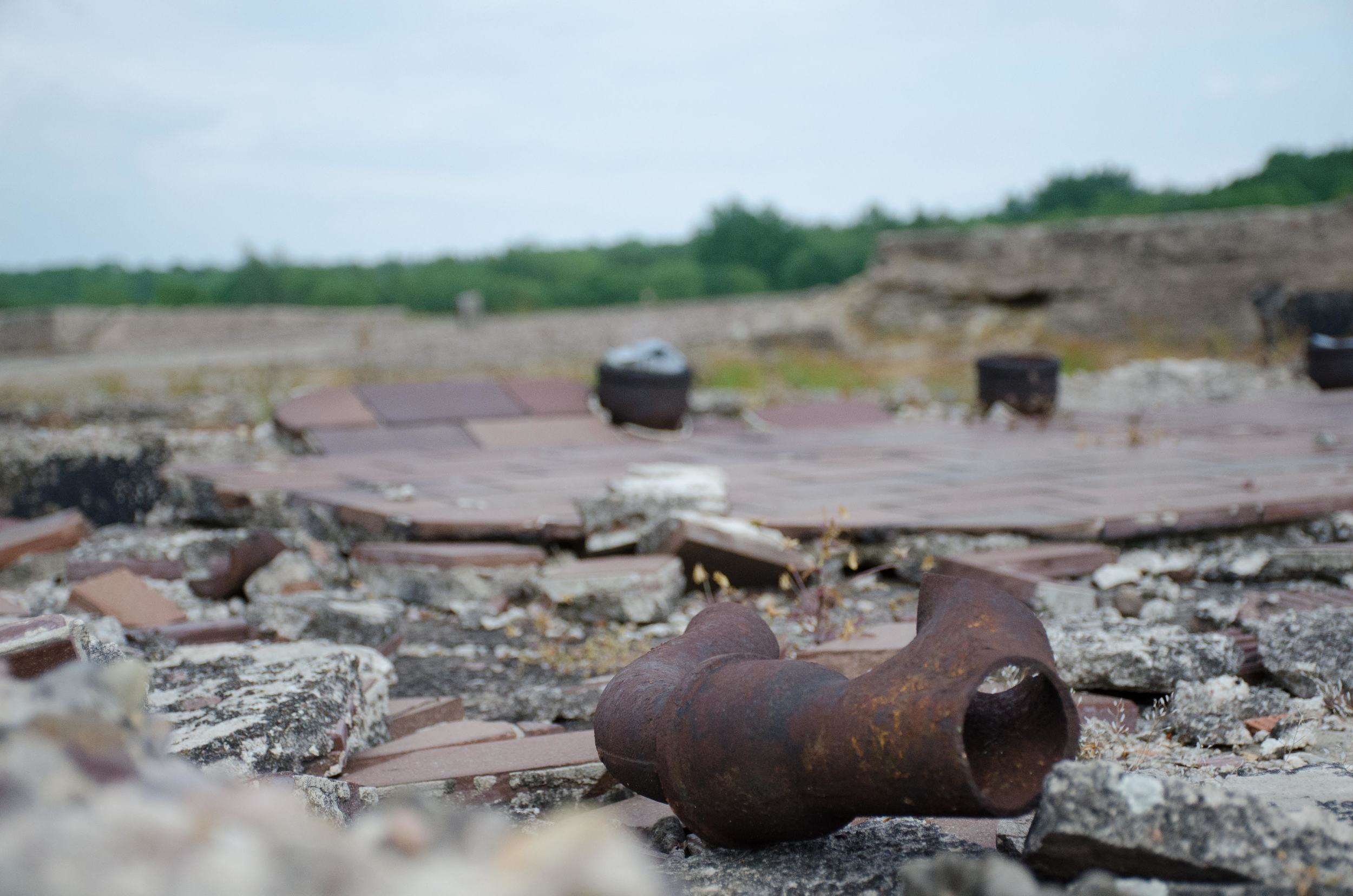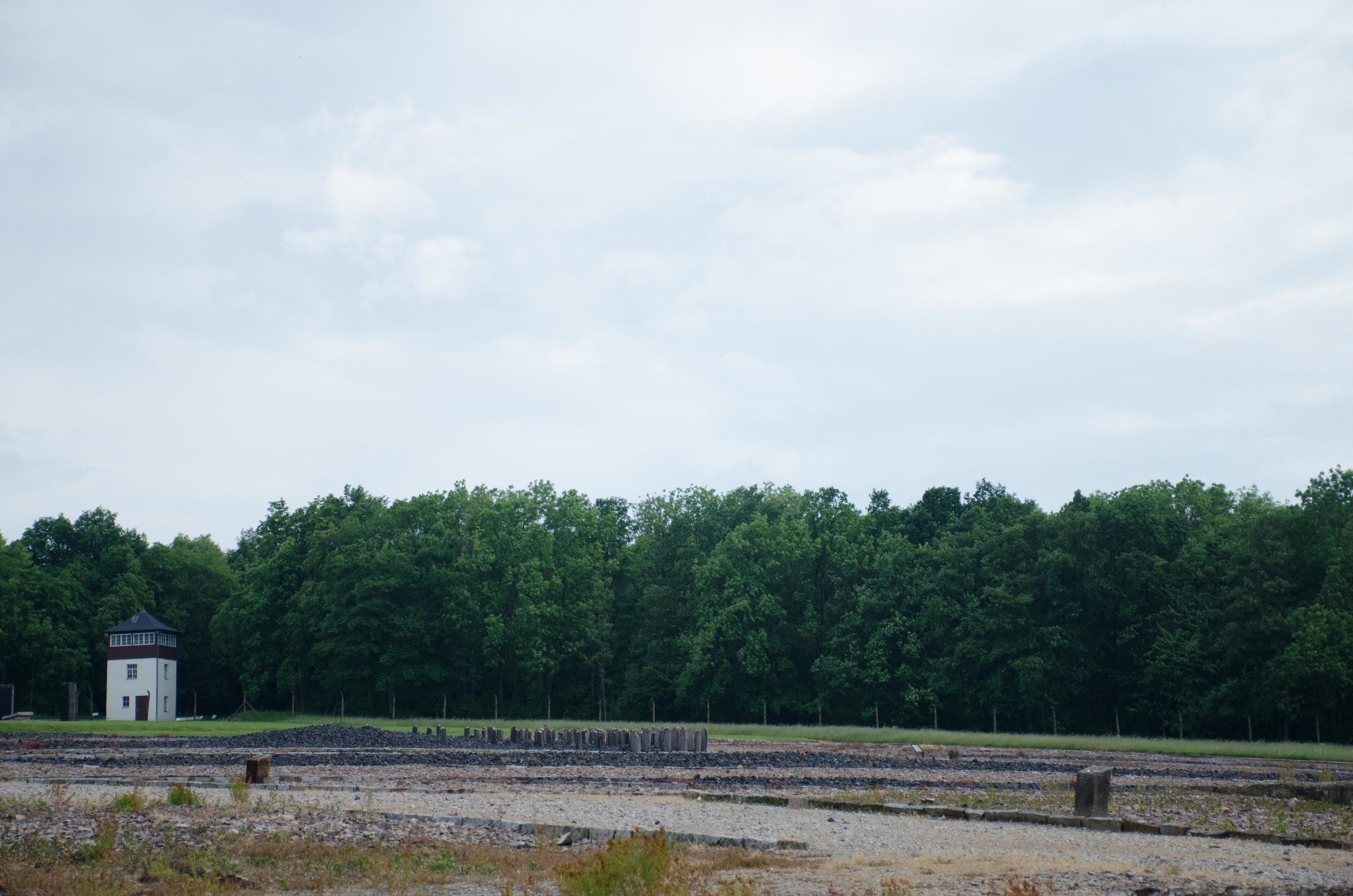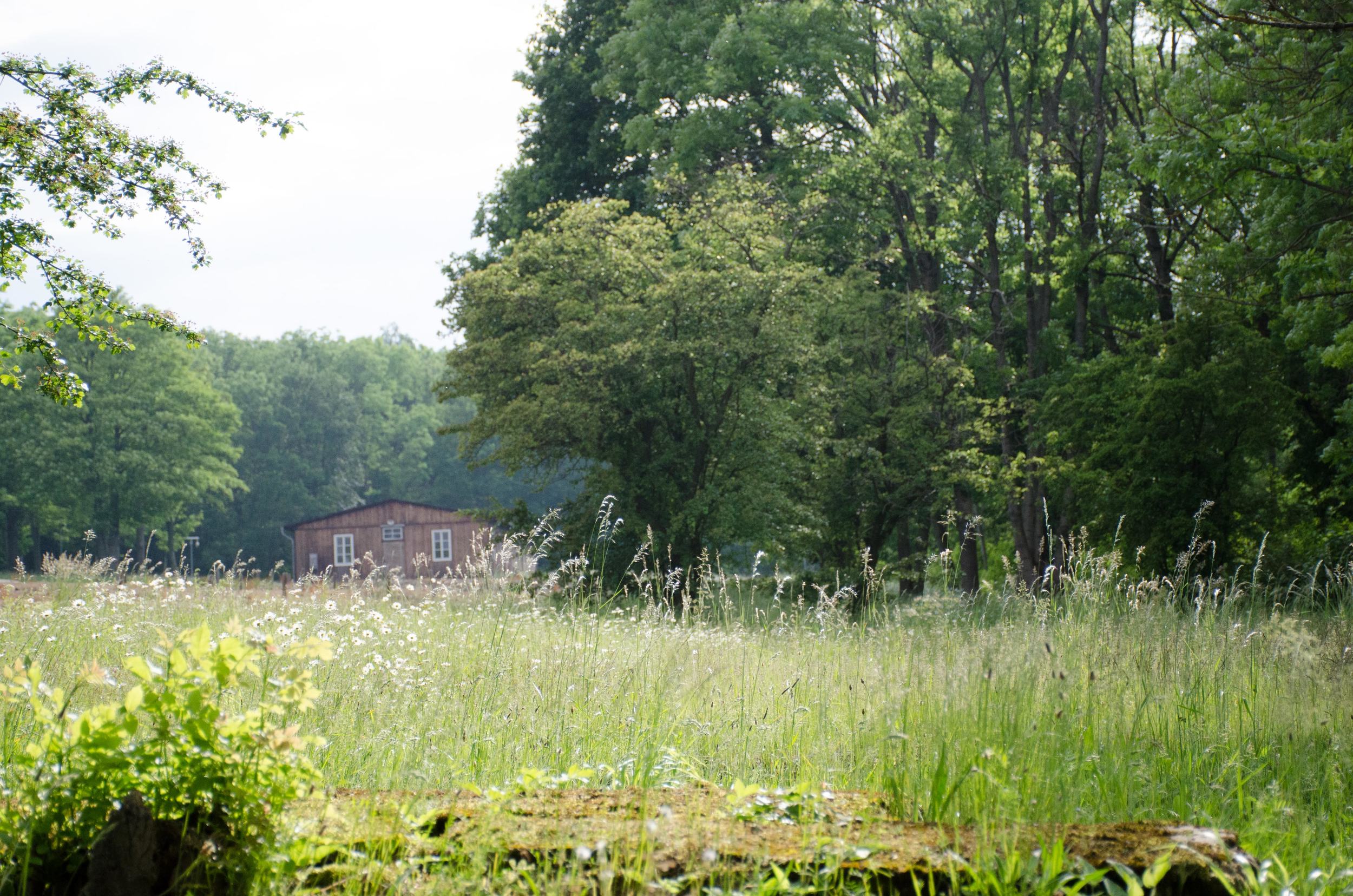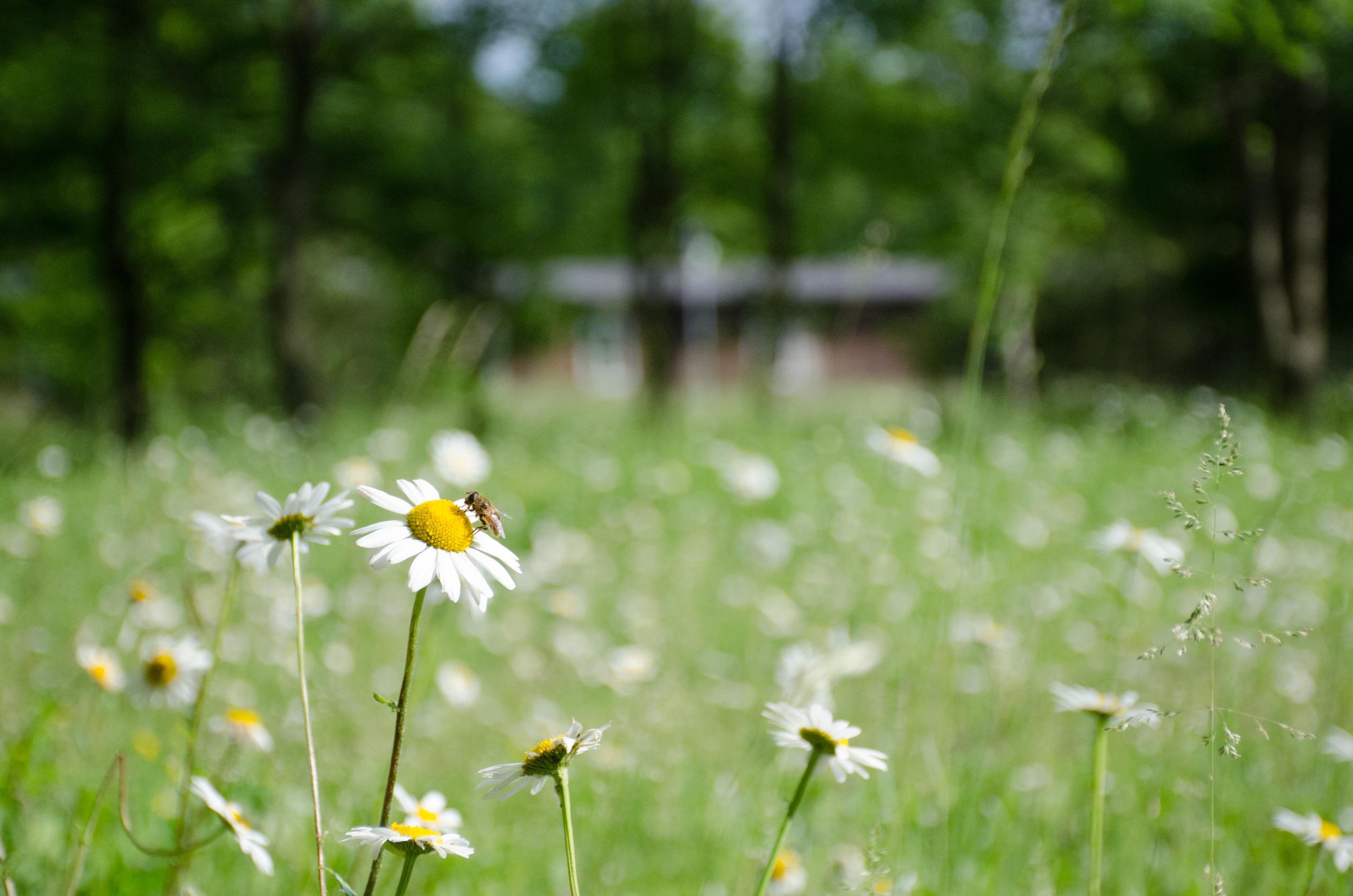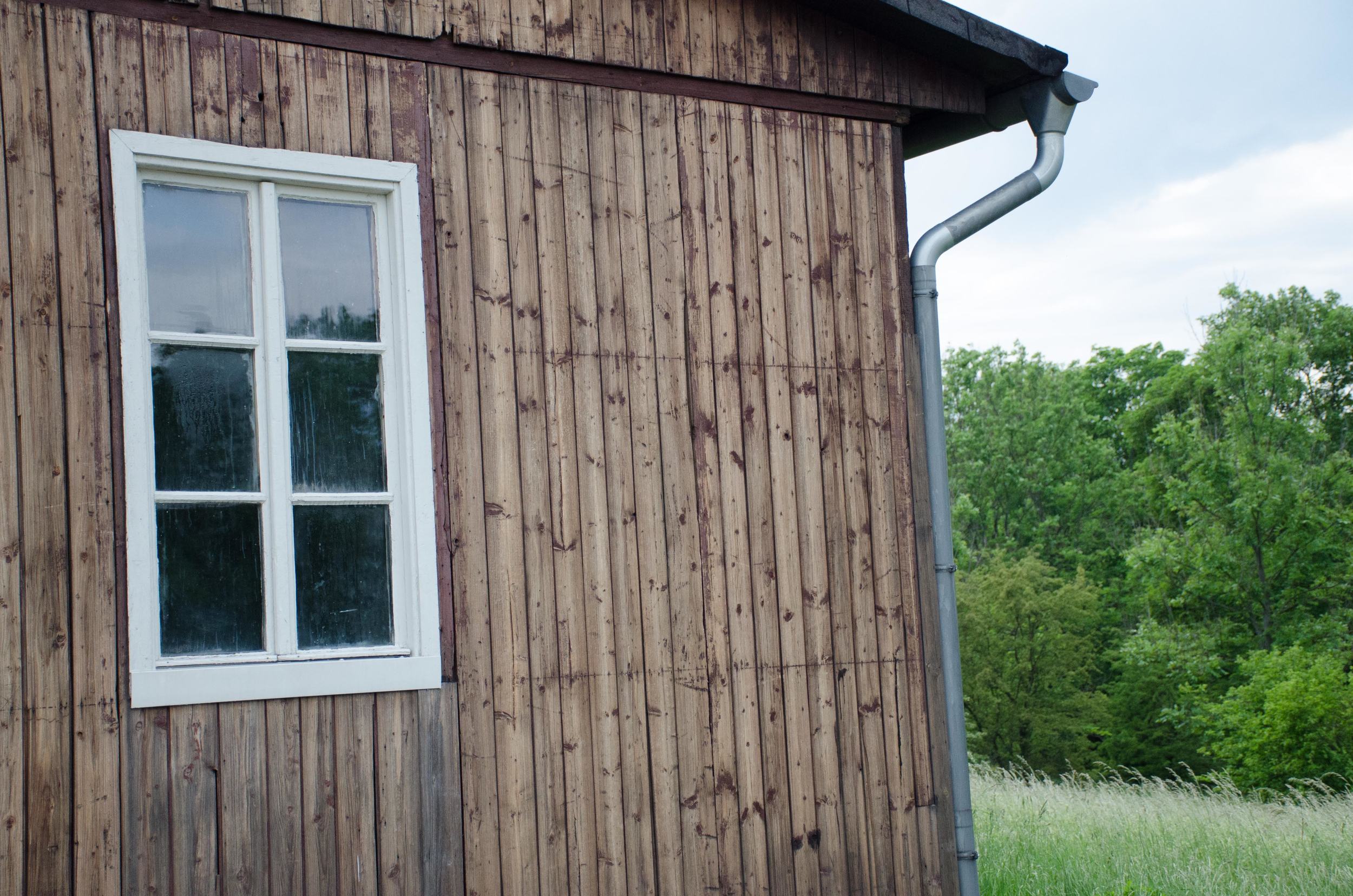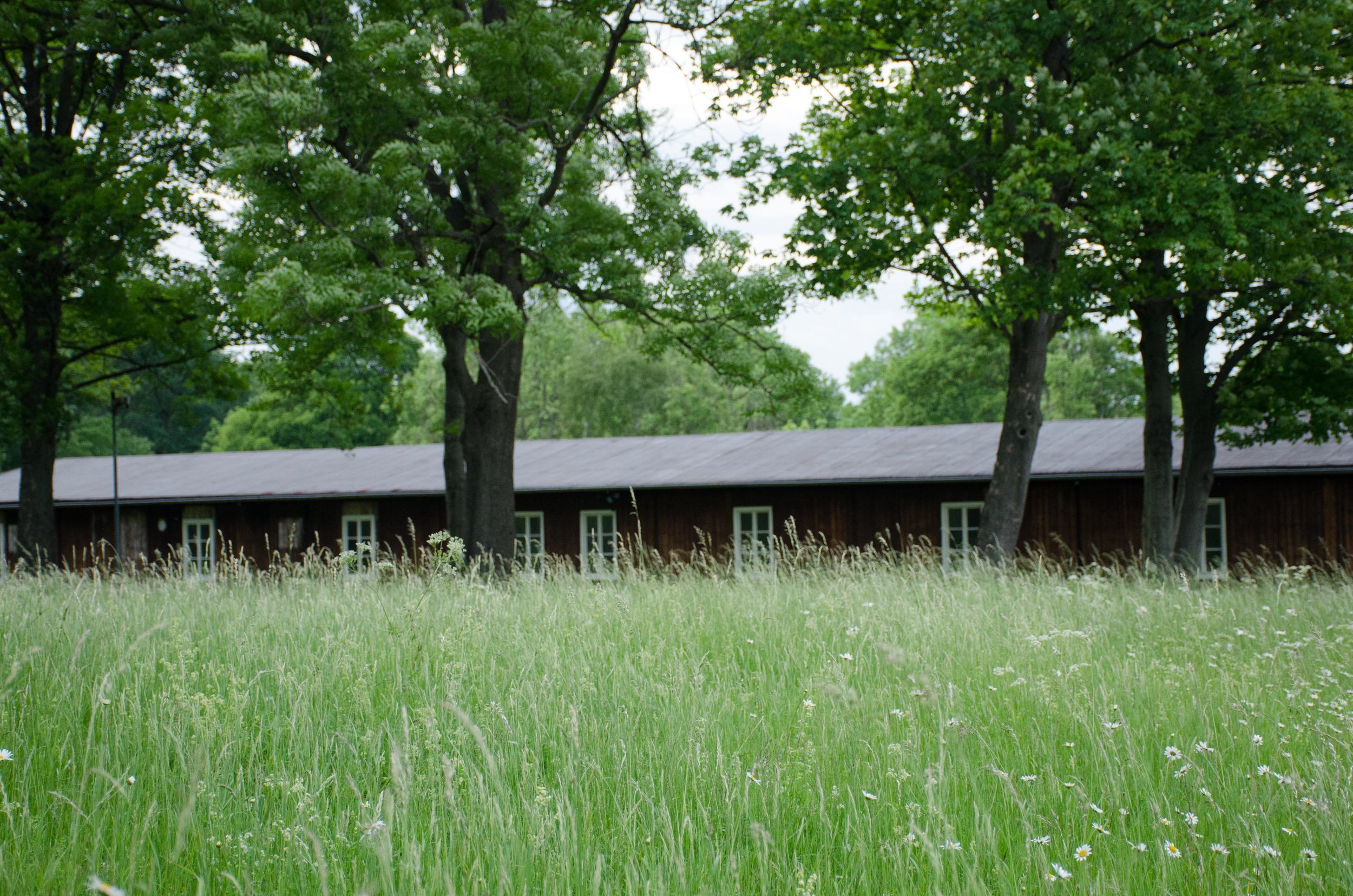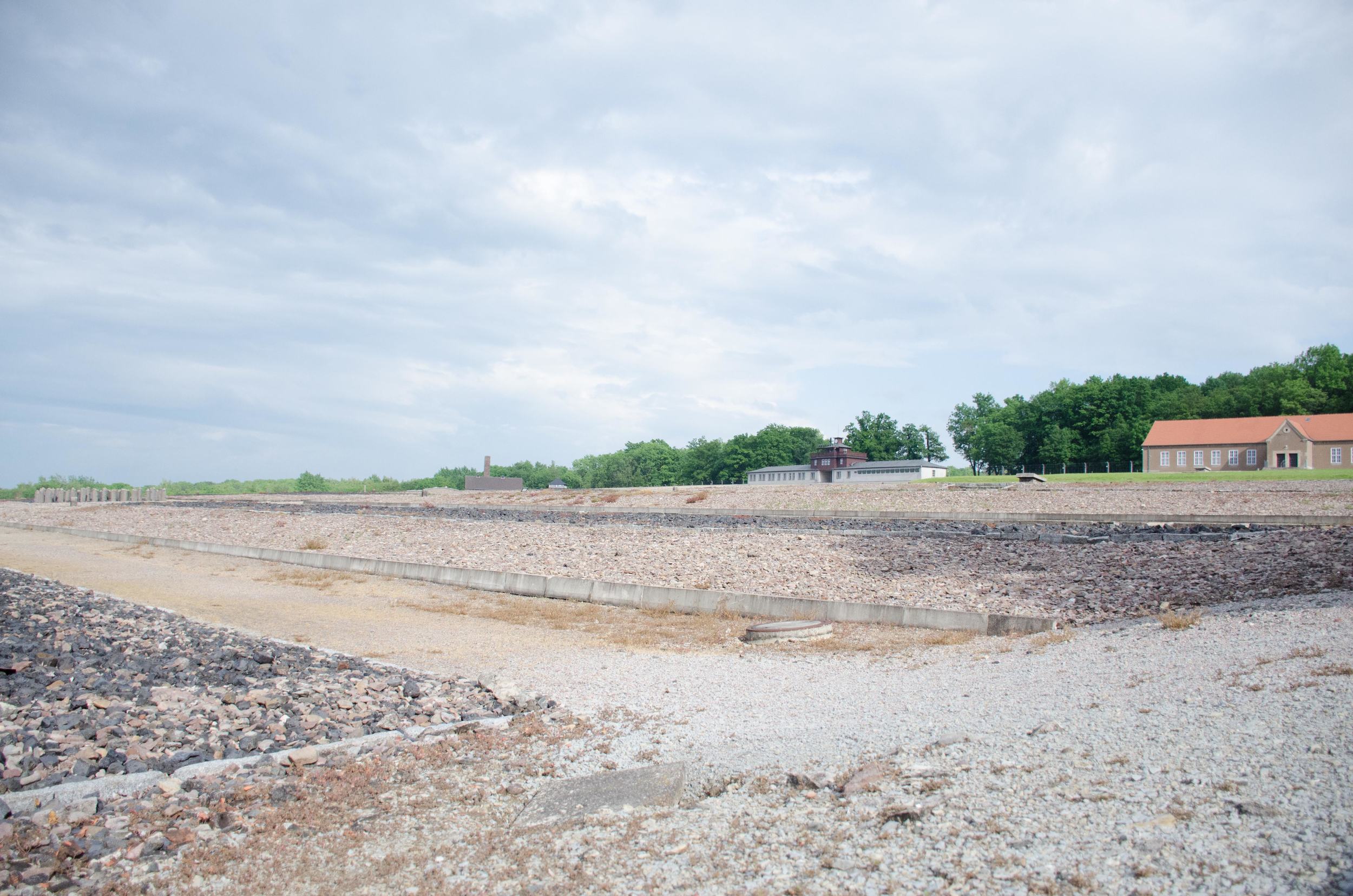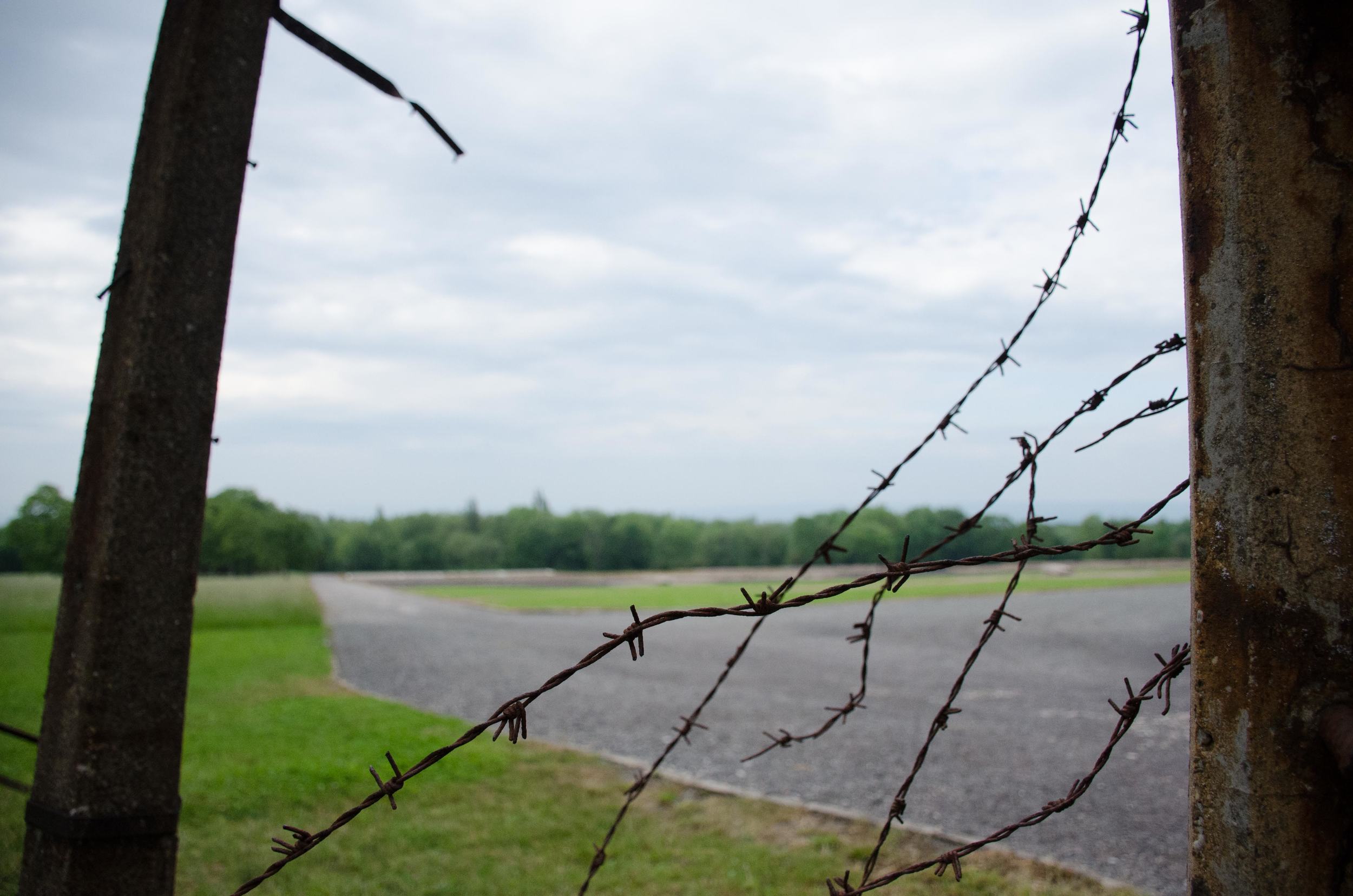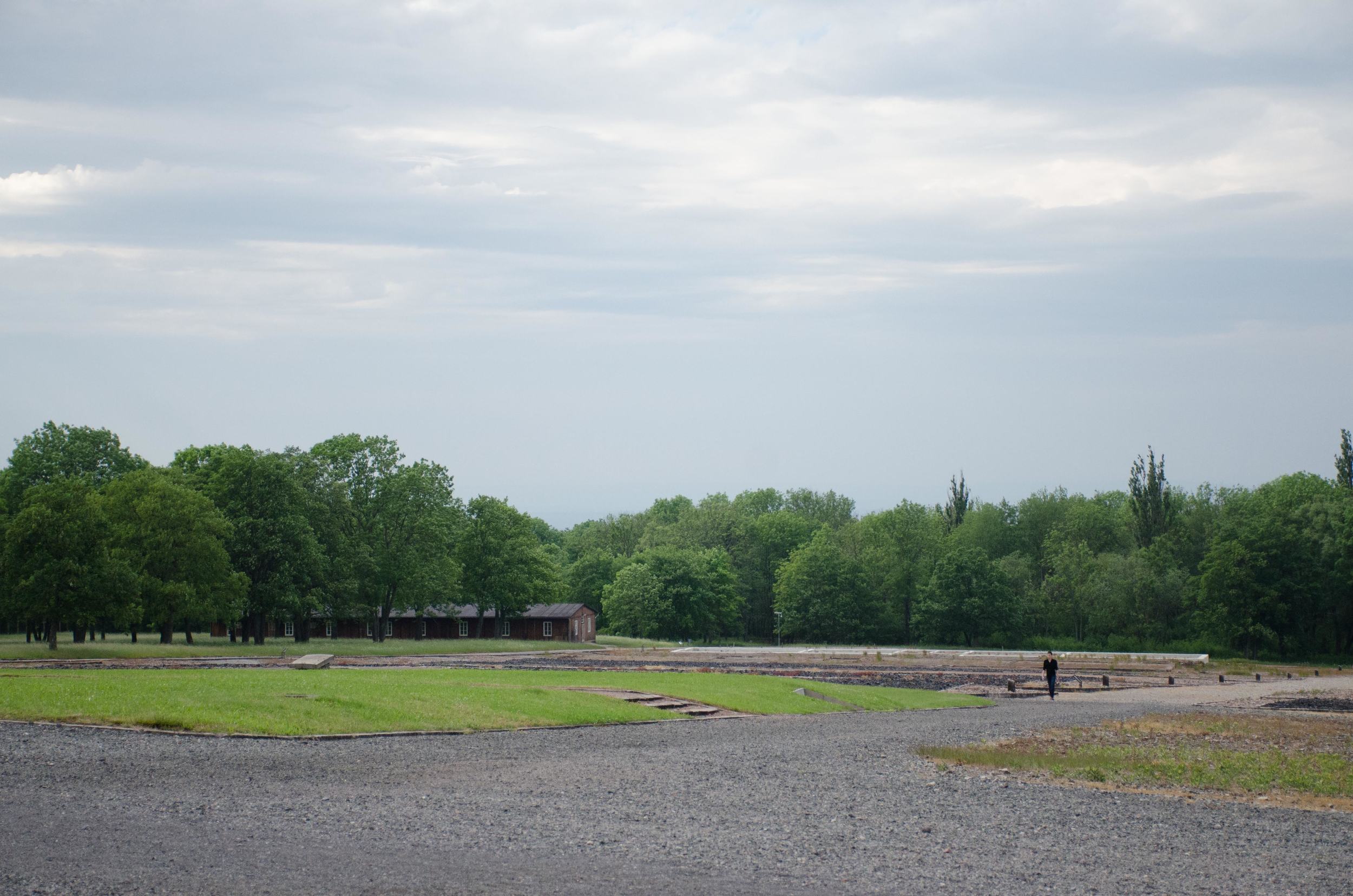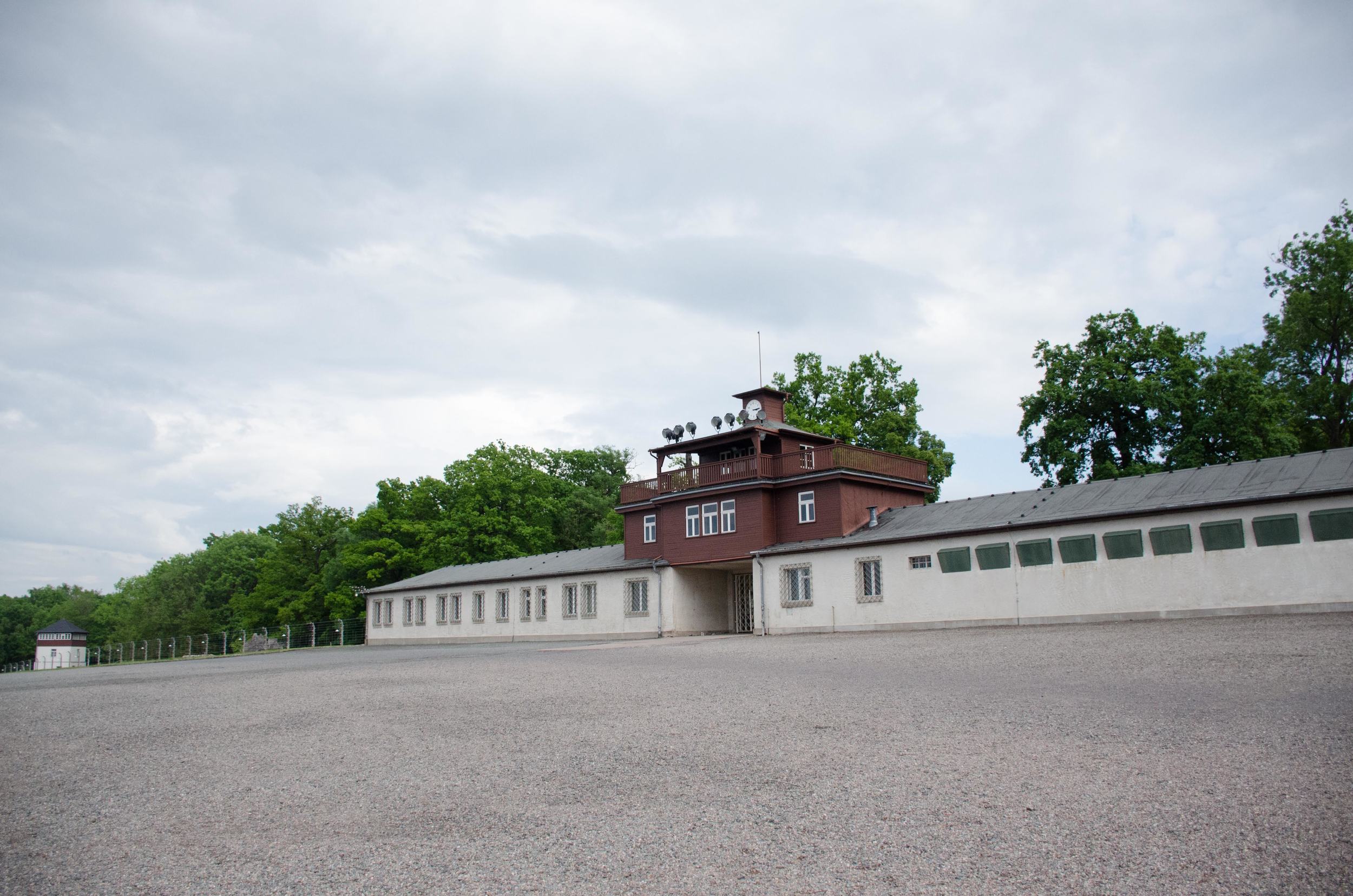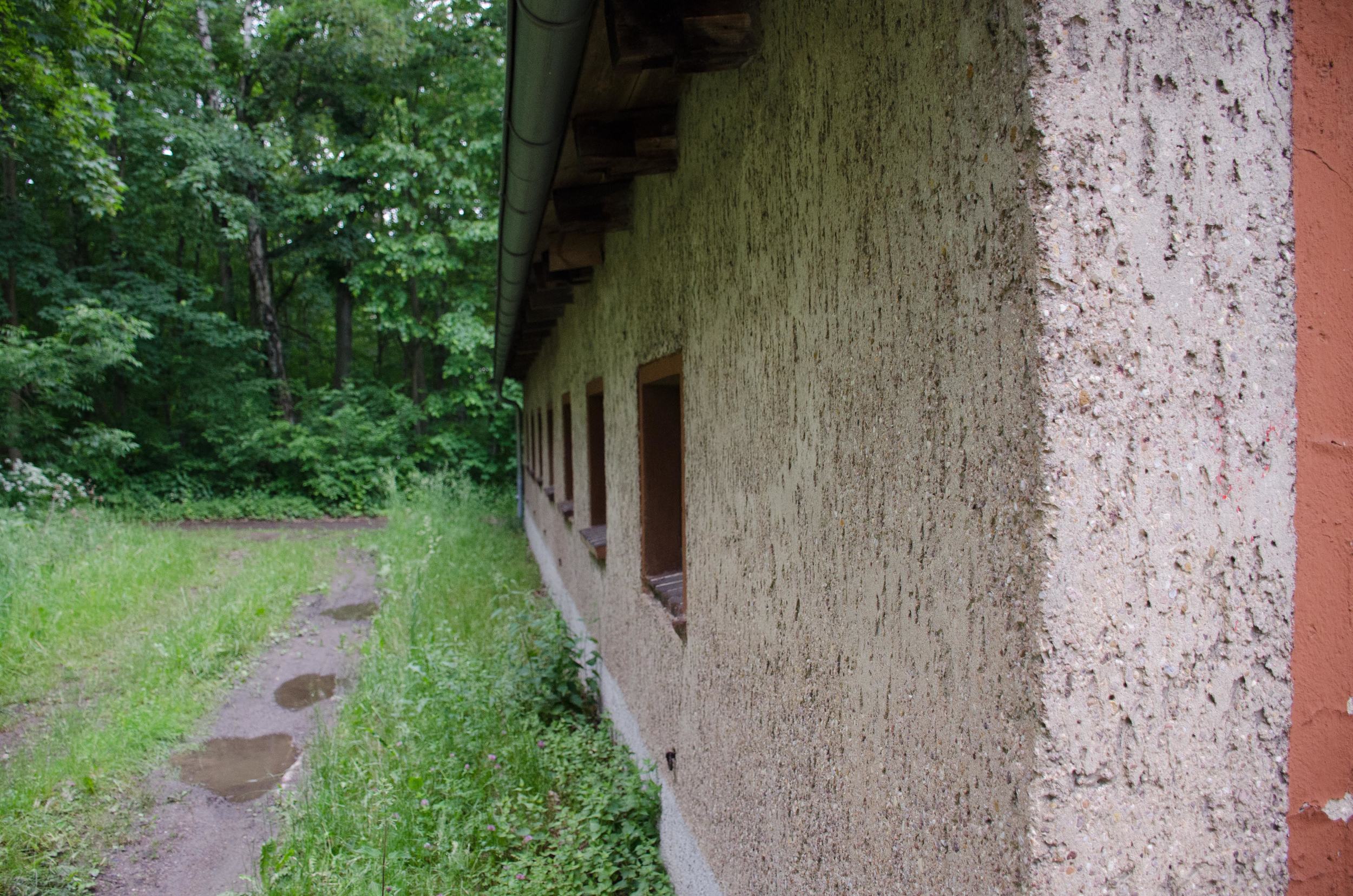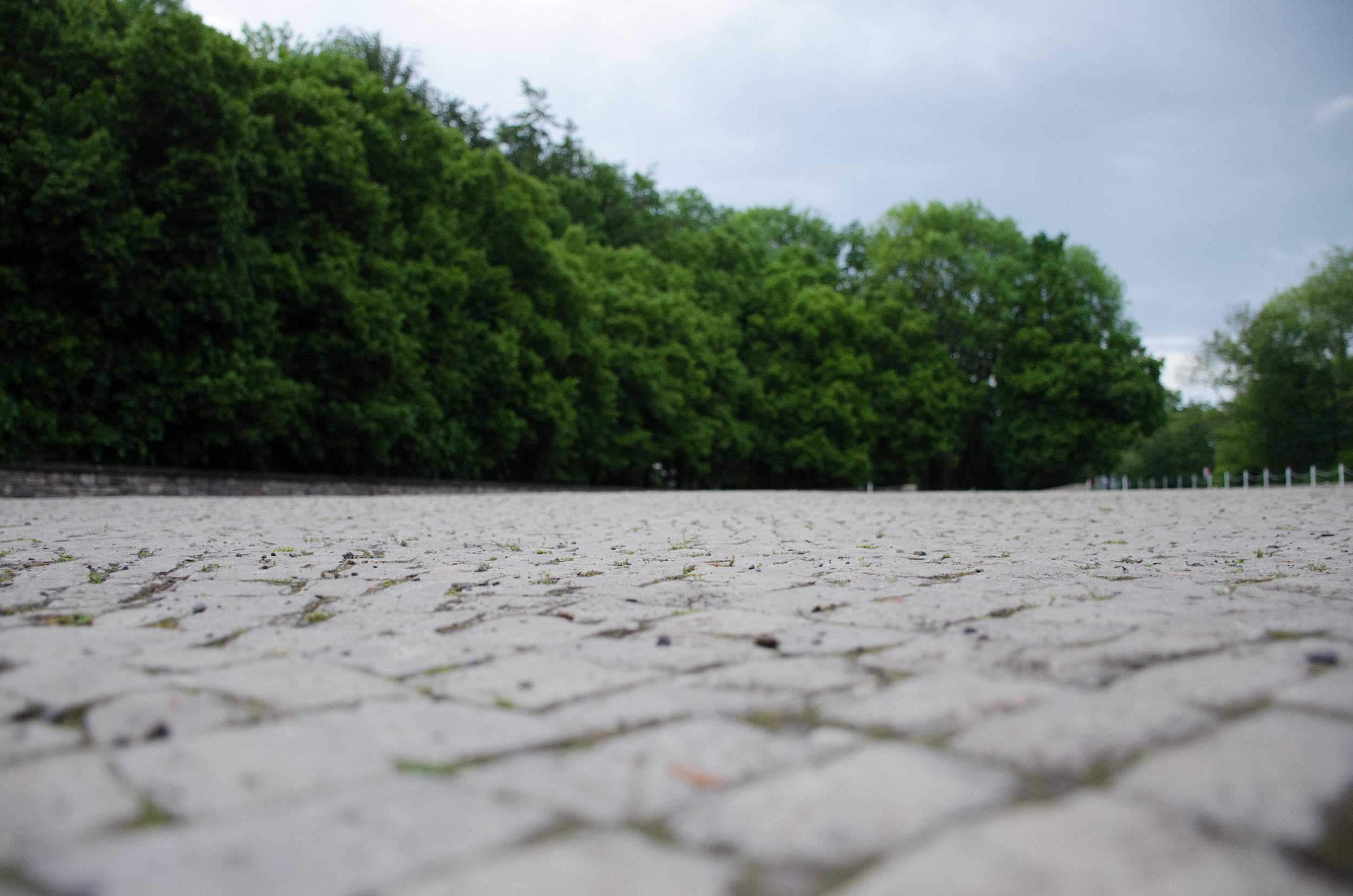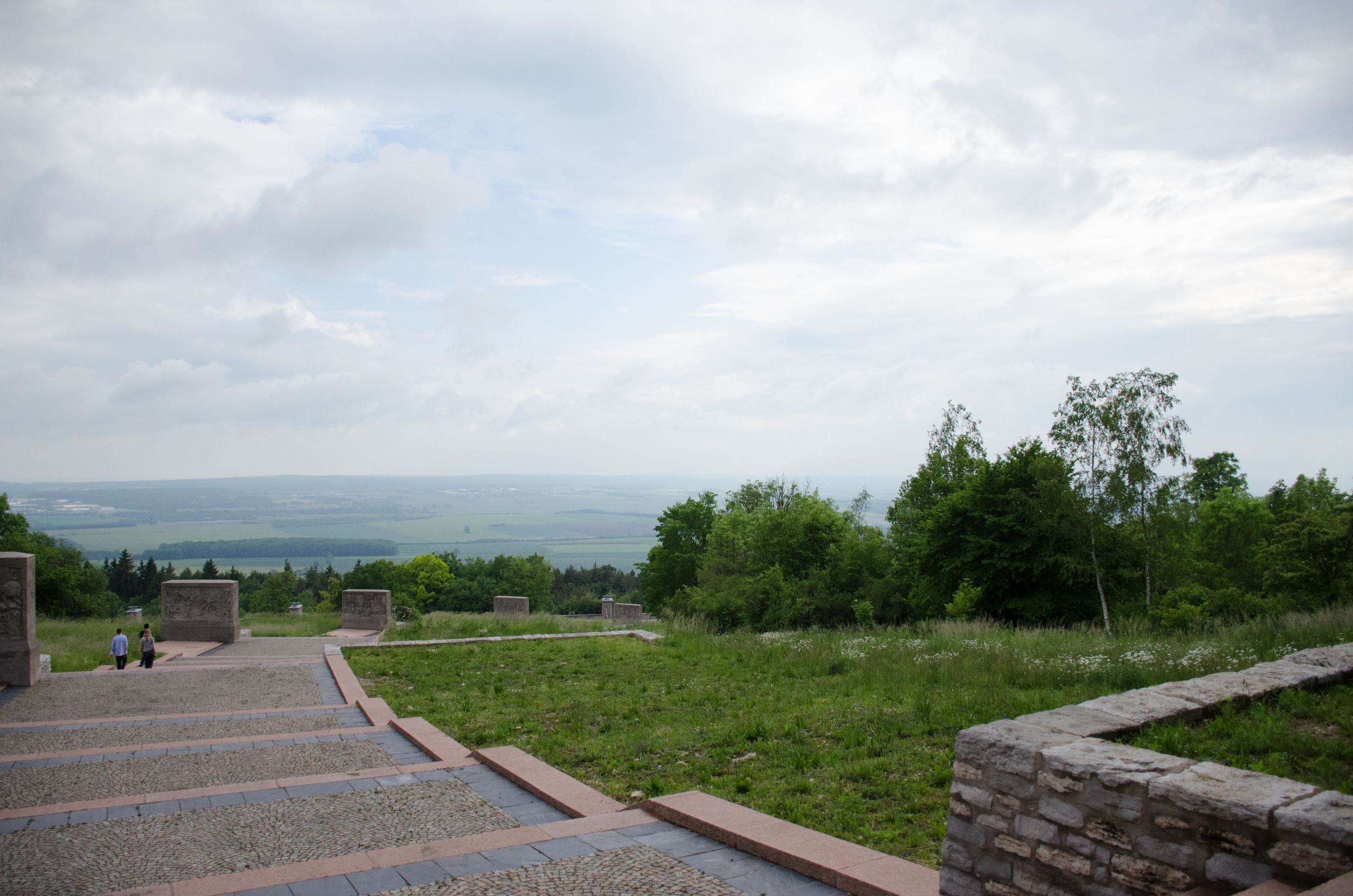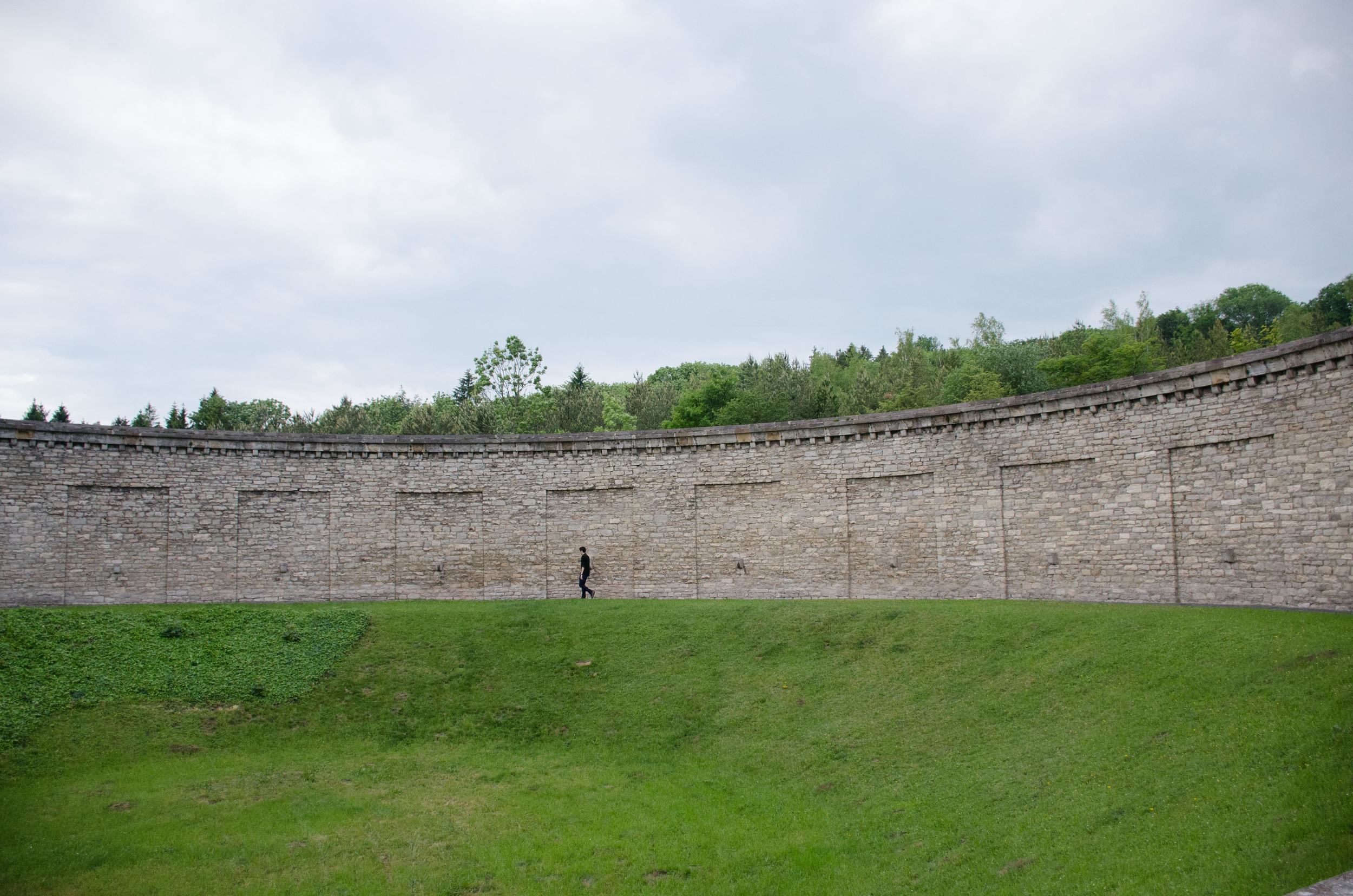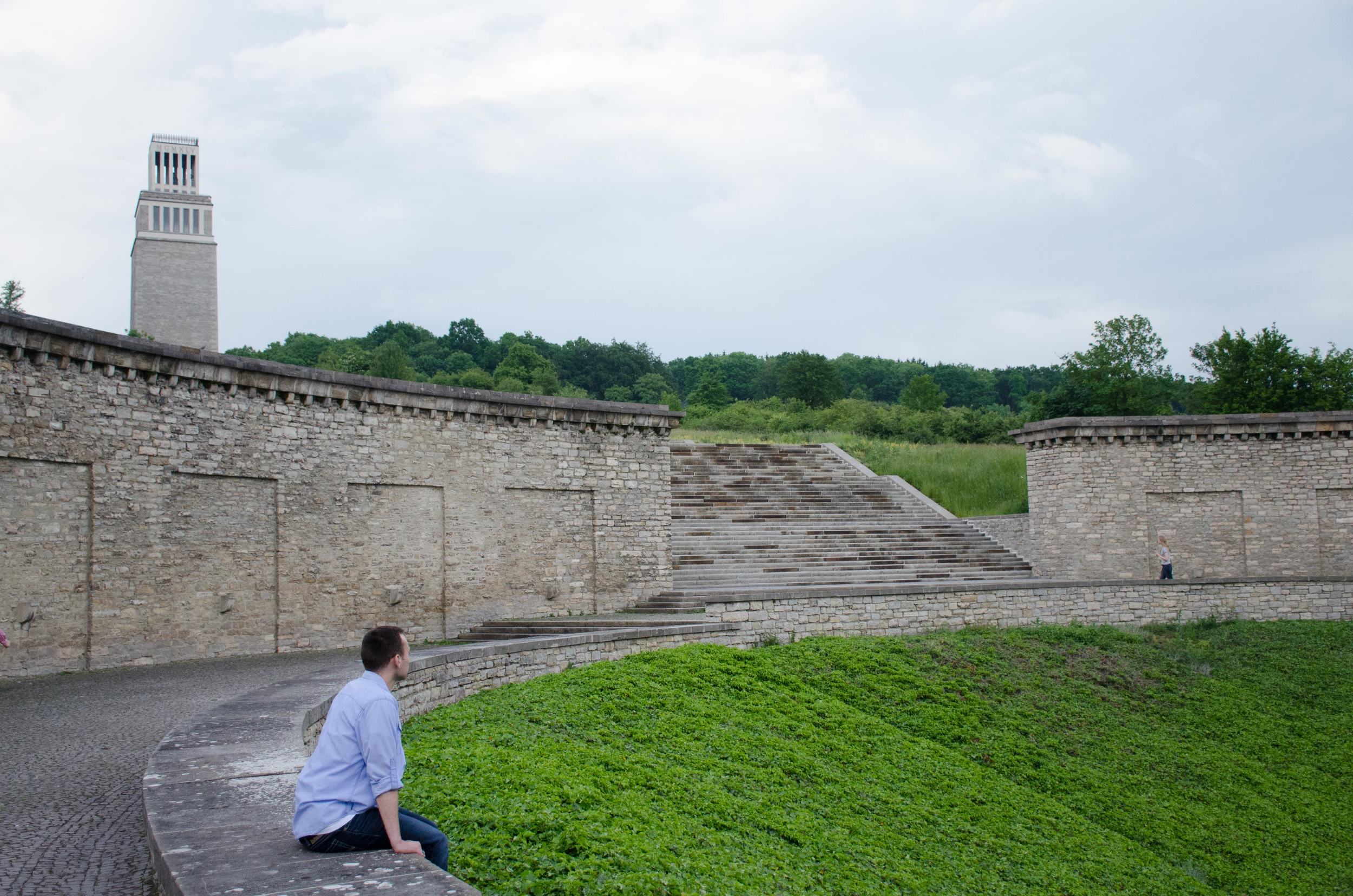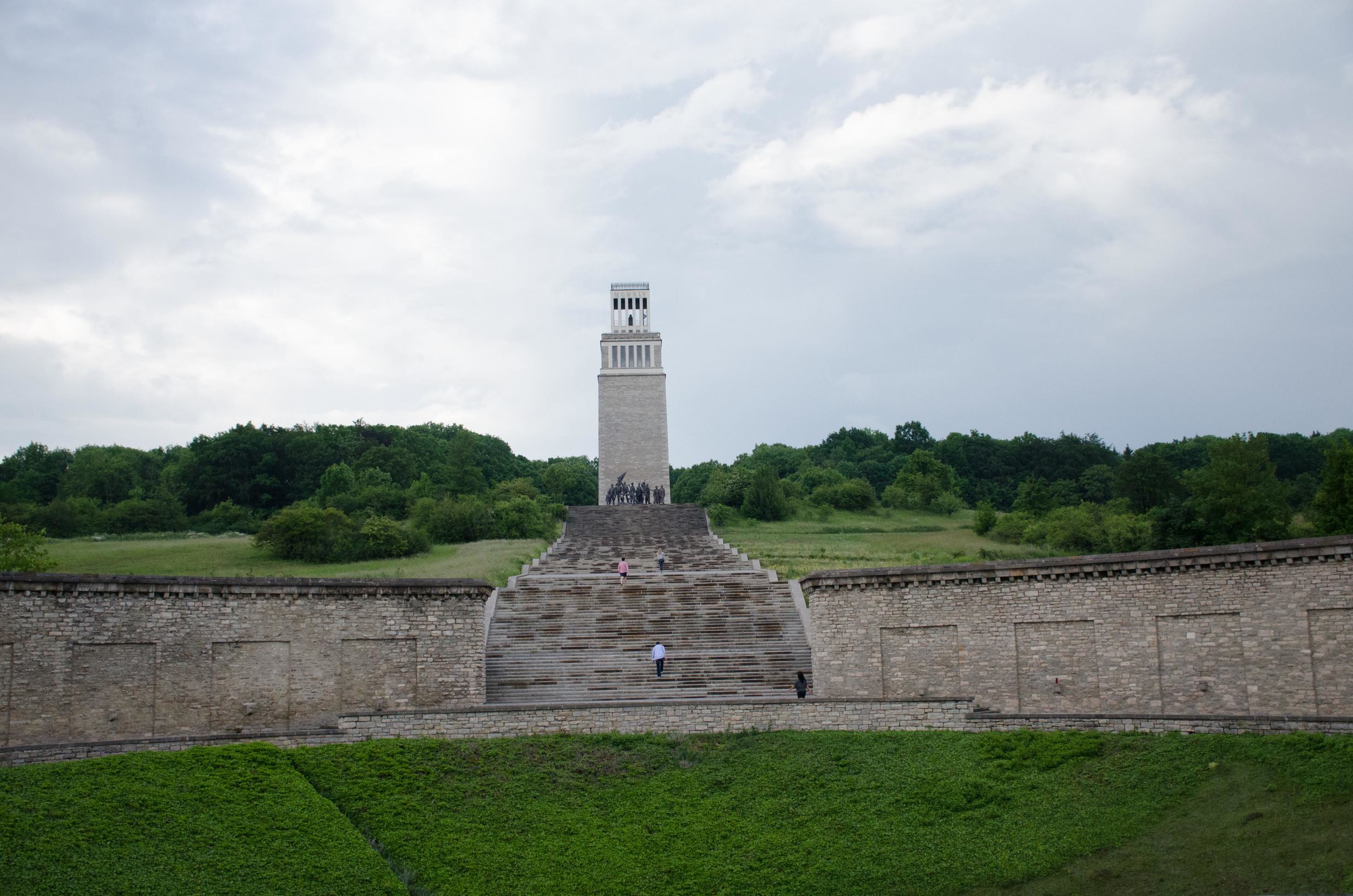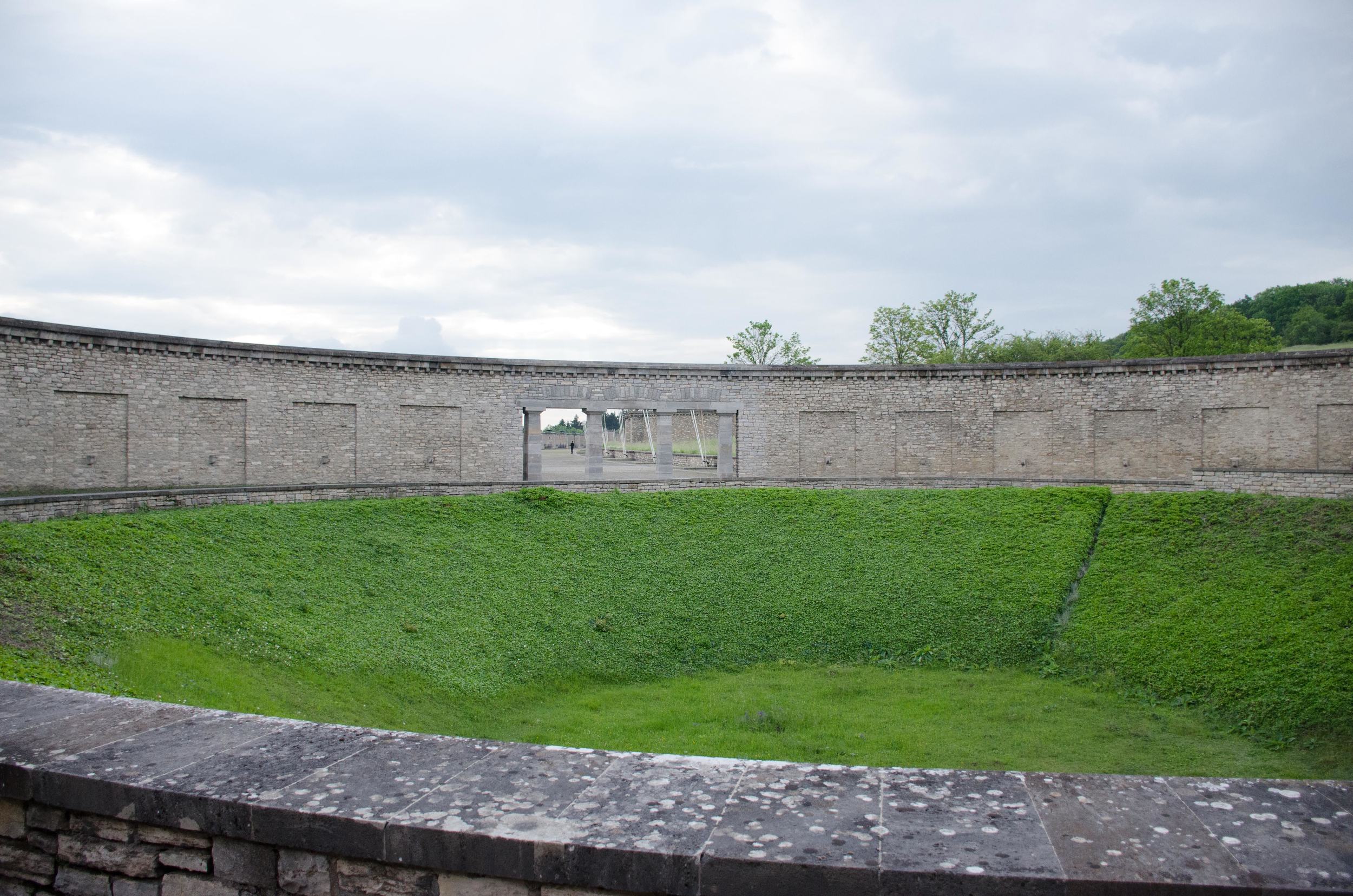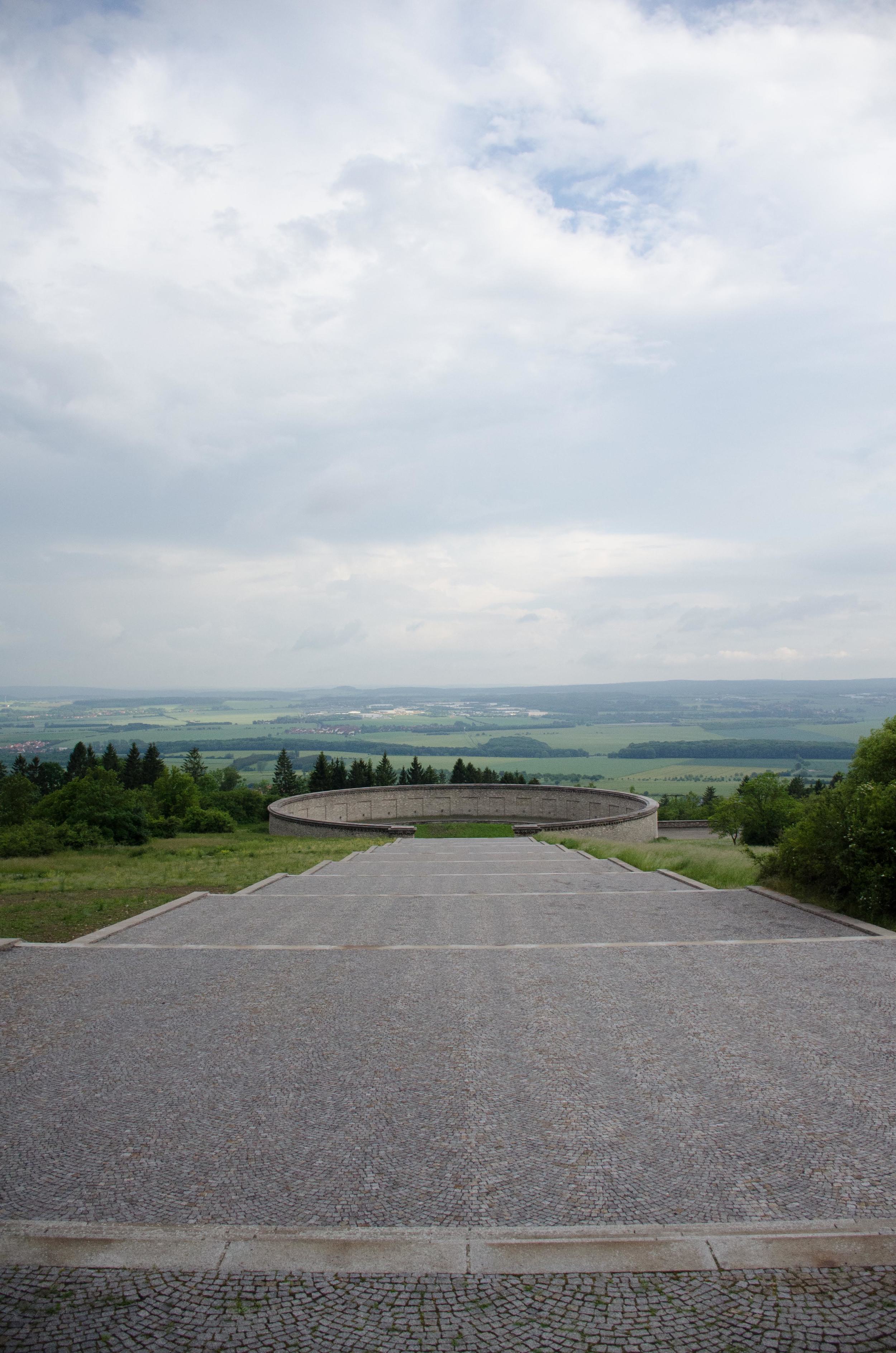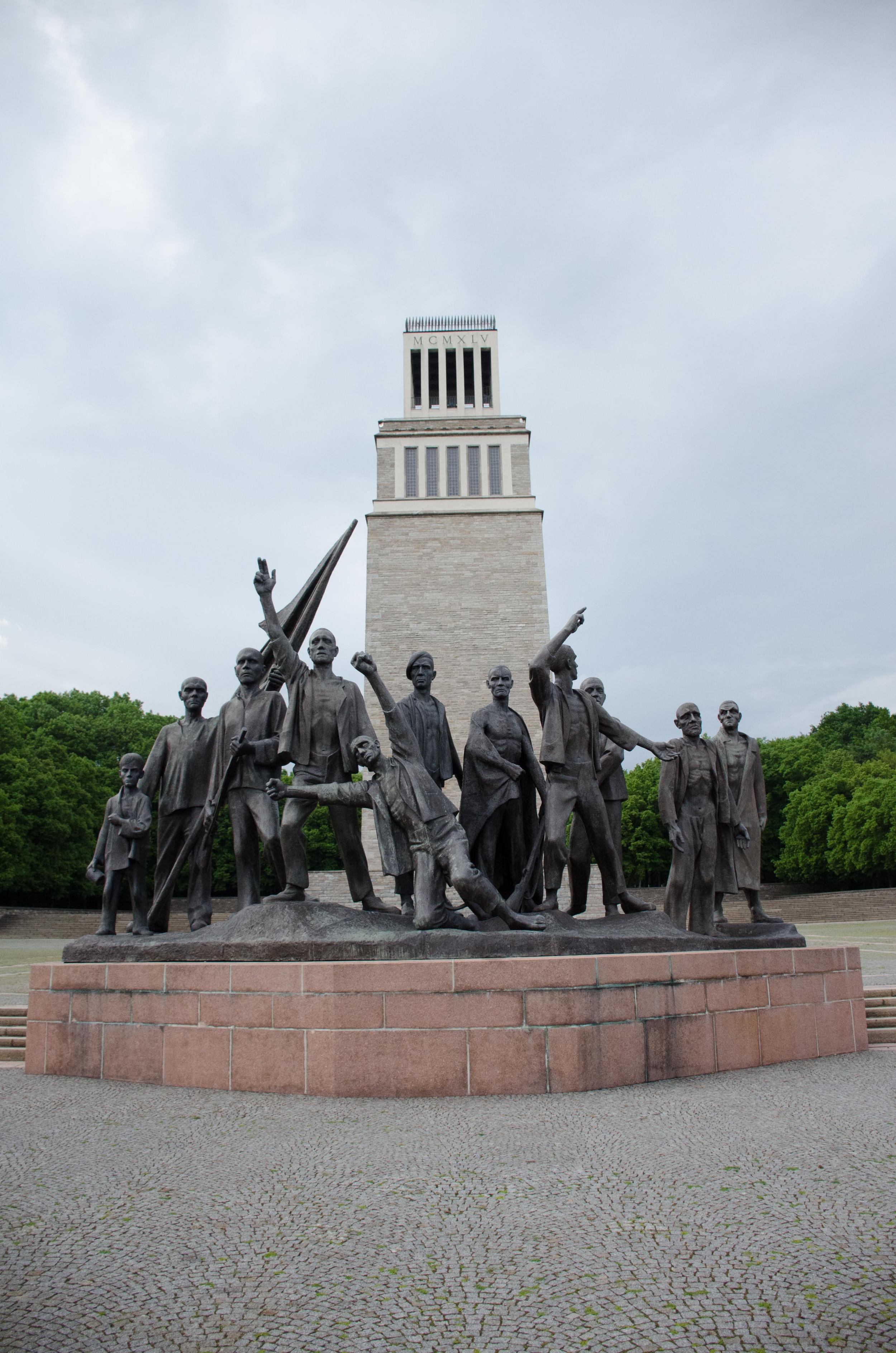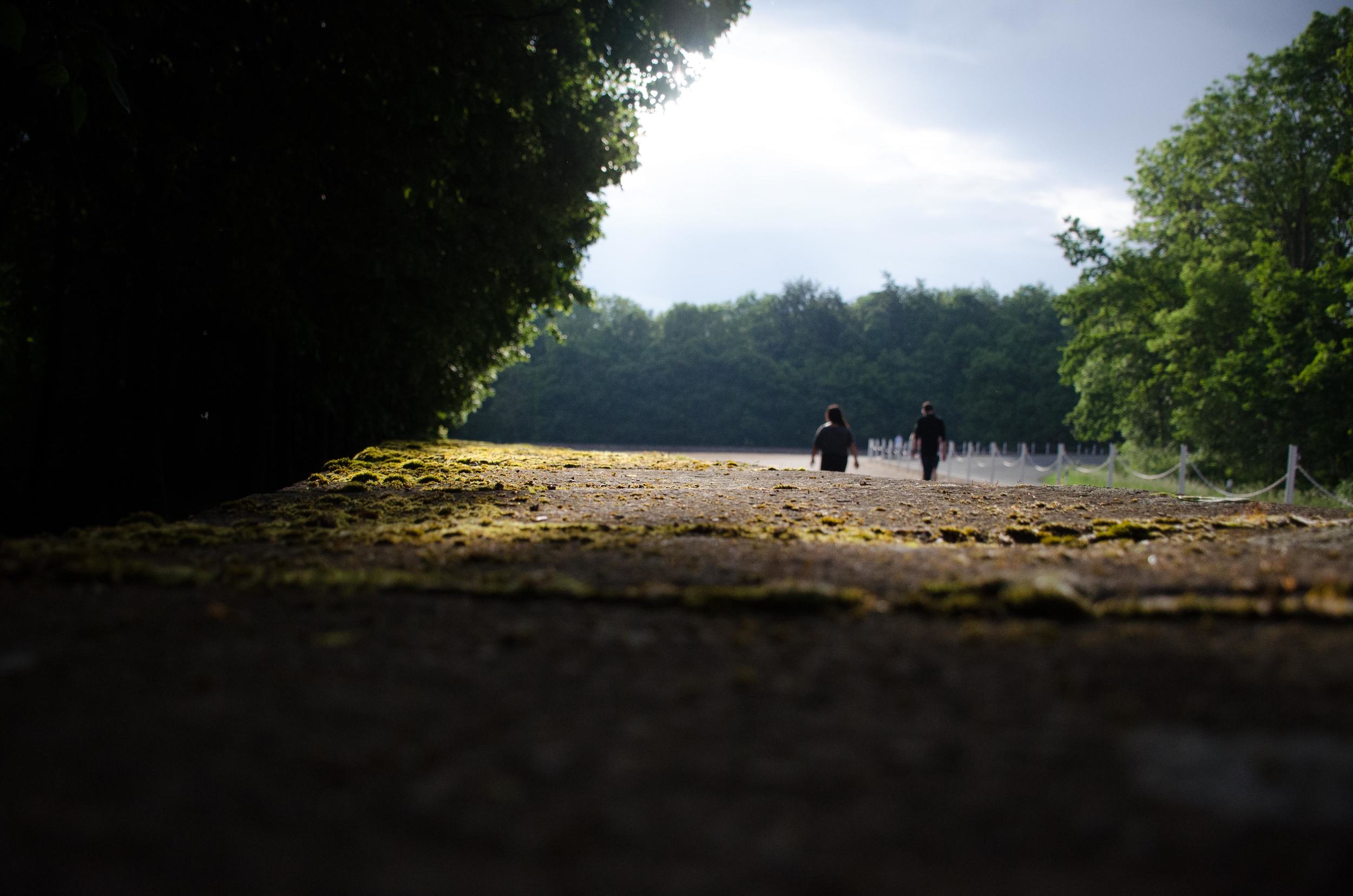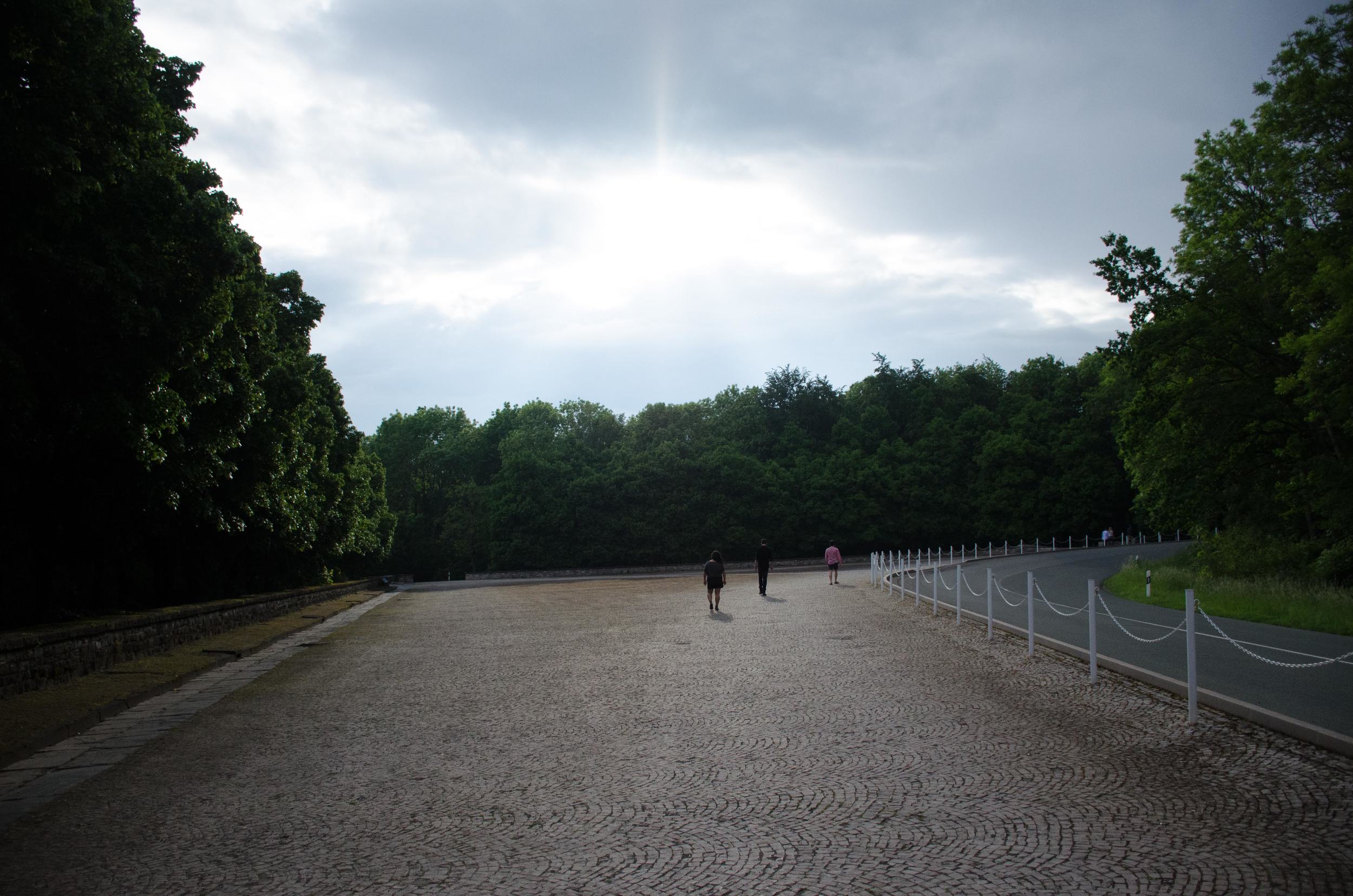Day 7: A Day of Paradoxes
by Gianmarco Massameno
Today, we ventured into quaint Weimar, the former home of Liszt, Goethe, Schiller, Bach, and others. We then visited the Nazi concentration camp, Buchenwald. The contrast between these two places was stark and palpable, and left us thinking deeply about profound issues of life and death.
Our only organ-free day began with a bright, sun-filled trek to Weimar, the city from which the Weimar Republic received its name. (The Republic’s constitution was signed here because the drafters considered Weimar a safer place to gather than, e.g., Berlin due to wide public unrest there.) While walking, we discovered a charming restaurant, Cielo, where we ate lunch. Our various pasta dishes, incorporating everything from chicken to kangaroo meats, were delicious. With full stomachs, we then decided to shop for dinner at the farmers’ market assembled in the city’s main square. Fresh dill from Hupel Farms inspired a dinner of a dill and Dijon encrusted salmon. Warm sun, hearty laughter, delectable food, and pleasant company graced our morning.
Such was not the case of our afternoon, however. We entered Buchenwald via Blood Road, a heavily wooded three kilometer drive named for the inmates whose blood stained the road their Nazi captors forced them to build. We drove the stretch in silence, and remained that way for most of our visit. Buchenwald is a deeply enigmatic place best described by the paradoxes it presents: It is both beautiful and ugly, serene and disturbing. Its incredible natural beauty belies its horrifying past, and this unsettling dichotomy makes Buchenwald even more troubling. In an almost cliché turn, dark clouds replaced morning sun, and rain began to fall. Today, though, the rain bothered none of us. It would have been wrong to let it, given what occurred here. The statistics speak for themselves: From 1937 to 1945 the Camp saw 277,800 inmates aged two to 86 years (of which 60,000 were women and children), and a total of 56,000 deaths. Thirty-five hundred meters of electric barbed wire walls imprisoned them, keeping them from the nearby residents of Weimar who went about their normal lives as tens of thousands died a mere six miles away. (After the War, American troops ordered these residents to walk through Buchenwald to see what atrocities occurred there.) Ironically, Nazi imprisoners ultimately became the imprisoned at Buchenwald. Underscoring this irony was the Camp’s motto, jedem das seine, “to each his own,” written by the Nazis for the Jews, but ultimately used on them by the Allied Forces. As the Camp closed, we filed out and left the way we came—in silence. Cold rain, stark silence, and reflective solitude defined our afternoon.
While, as the only organ-free day of our trip, today had the least to do with music, it also had the most to do with it; by losing ourselves in the difficult, uncomfortable thoughts that Buchenwald impels its visitors to confront, we became reacquainted with the emotional depth that informs our music making. Experiences like today’s breathe life into what is otherwise a collection of notes on a page.
